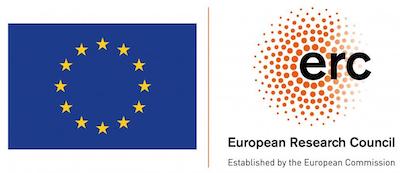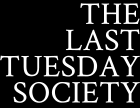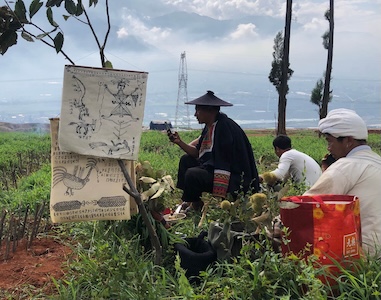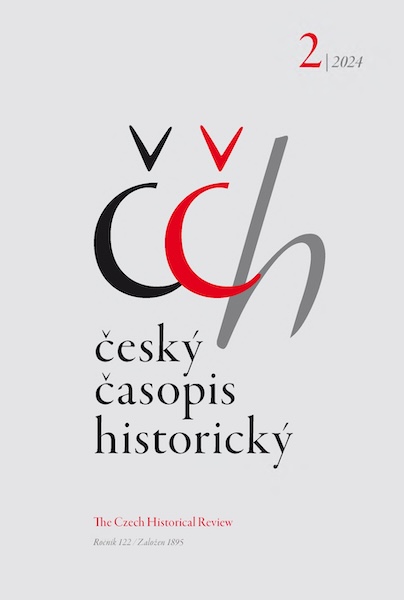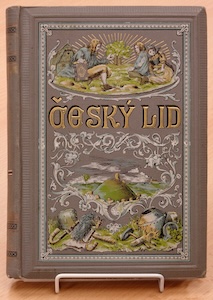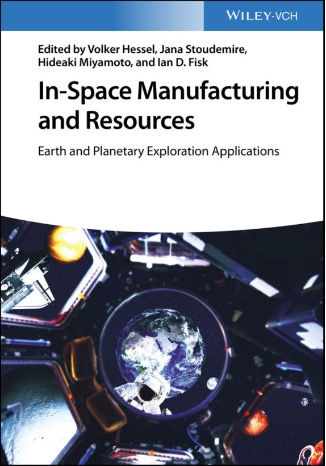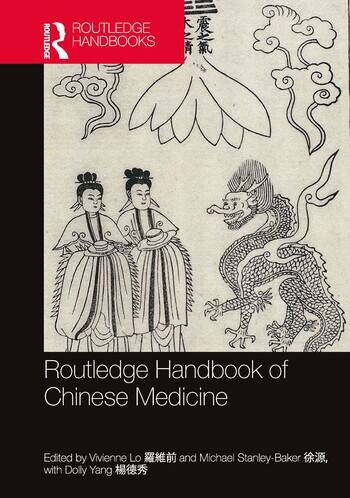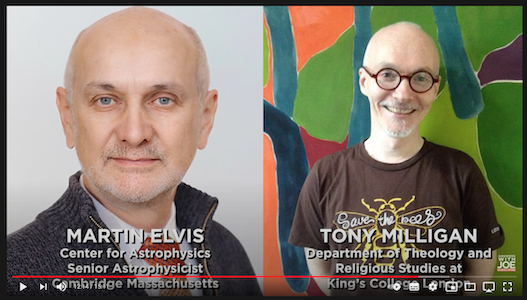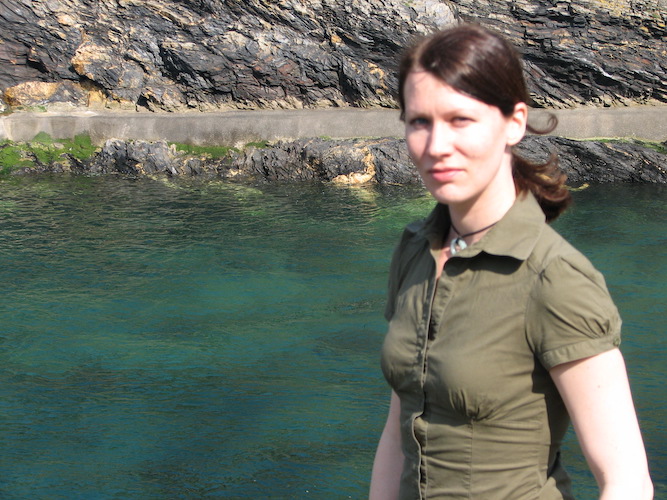
Katherine Swancutt is researching ‘Ethnological and Priestly
Visions of Environmental Science and Animistic Forestry Rites’.
She is documenting ecological initiatives and new animistic
rituals for forestry protection across the Liangshan mountains
of Southwest China, working closely with Nuosu priests, shamans,
ethnologists, rural villagers, and natural scientists. To
jointly explore the possibility of sourcing new visions to
address climate change, she is bringing Nuosu religious
specialists, ethnologists, and rural villagers into conversation
with natural scientists.
Katherine’s area of interest is shamanism, animism, and the
relationships between cosmology, ecology, and the environment.
She has conducted anthropological fieldwork for more than two
decades in Southwest China, Northeast Mongolia, and Northern
China. Some key themes running through her work are: cosmology
and the scientific; climate change; anthropological debates
about ontology and worldmaking; deforestation and
industrialization; indigeneity, health, and modernization;
jokes, humour, and parody; imagination, and aesthetics;
economies of value; hierarchy and slavery; human-animal
relations; indigenous intellectuals; fame and dreams; and the
emotively moving qualities of display. Publications include
Demons and Gods on Display: The Anthropology of Display and
Worldmaking
(special issue of Asian Ethnology,
2023);
Crafting Chinese Memories: The Art and Materiality of
Storytelling
(Berghahn, 2021);
Animism Beyond the Soul: Ontology, Reflexivity, and the
Making of Anthropological Knowledge
(special issue of Social Analysis,
2016, also published by Berghahn, 2018);
Fortune and the Cursed: The Sliding Scale of Time in
Mongolian Divination
(Berghahn, 2012); numerous articles in journals such as the
Journal of the Royal Anthropological Institute; Social Analysis;
Annual Review of Anthropology;
Inner Asia; and
Religion and Society: Advances in Research. She is currently finishing a monograph on dreams that shows
how Nuosu build fame through their visions of safeguarding their
culture and environment.
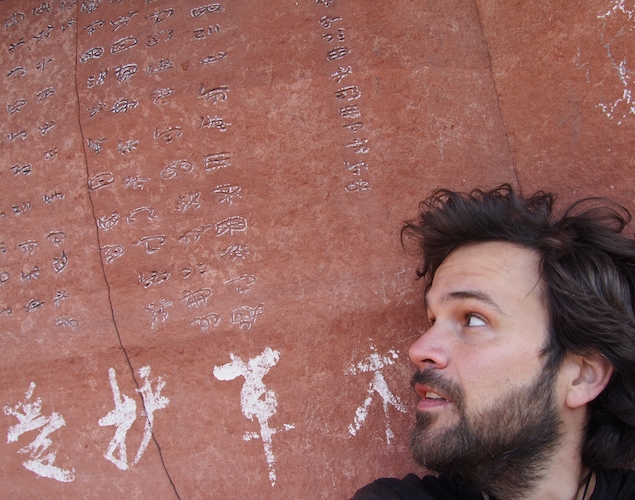
Jan Karlach is researching ‘Paths of Souls and Corridors of
Chinese Scientific Modernization: Visions of Railroads,
Highways, Digital Cables, and the Nuosu-Yi Cosmology’ in the
Liangshan Yi Autonomous Prefecture of Sichuan Province,
Southwest China. He works with Nuosu-Yi literati-ritualists and
shamans to understand how Chinese economic development is
absorbed into the shifting Nuosu-Yi animistic ontology. He
believes that the productive relationship between science and
animism could bring fresh perspectives on adaptation to
climatic, cultural, and political changes. The ongoing emphasis
on local knowledge within the Chinese legal framework concerning
ecological protection also provides a tool for enhancing the
continuity of diverse Chinese cultures and their cosmologies.
Jan’s research interests match the trajectory of his
disciplinary transformation. As a sinologist, he researched the
perception of the ‘other’ in Chinese classical and early modern
sources. After entering the field of social anthropology, he
studied a variety of themes, including the evolution of the
sciences in Republican and Socialist China; the historical
representation and discursive creation of Yi culture and Yi
ethnicity; the implementation and reception of policies in
Liangshan; the relationship between Chinese state-driven
modernization, Nuosu-Yi cosmology, and animistic practices;
reactions to the Covid-19 pandemic in Liangshan; and the use of
digital technology in Nuosu-Yi rituals. Jan also collaborated
with his research partners on the development of a divination
handbook and on a number of translations between the Nuosu-Yi,
Chinese, English, and Czech languages.
Publications include ‘Against the Flattening of Ridges and Ravines: (Dis)locating
Cultural Security Through Writing with the Yi of Southwest
China’ (Cultural Security in Contemporary China and Mongolia, Amsterdam University Press, 2025); ‘Between Officialdom and Nativeness: Mutually Appropriating
the State and the Nuosu-Yi Native Chieftain Clans in
Southwest China’ (Journal of Chinese History
中國歷史學刊, 2025); ‘
Mythogeographies of Anthropological Knowledge: Writing over
the Lines and Footsteps of History in Southwest China’ (Journal of the Royal Anthropological Institute, 2024); ‘Hearths, Mythologies, and Livelihood Choices: Exploring
Cultural Change under Poverty Alleviation with the
Nuosu-Yi of Liangshan’ (Modern China, 2023); ‘
Smartphone as Ritual Fan: Poaching in Weixin-mediated
(Cyber)space with Nuosu-Yi Ritualists of Liangshan,
Southwest China’ (Journal of Digital Social Research, 2023); ‘Republikánská antropologie jako komunita praxe: Mezi
politickou ideologií Kuomintangu a formováním národa pomocí
etnografického výzkumu v jihozápadní Číně / Republican-era
Anthropology as a Community of Practice: Between the
Political Ideology of the Kuomintang and Nation-Making
Through Ethnographic Research in Southwest China’ (Český lid, 2023);
Nuosu nyisi taji teyy ꆈꌠꑍꌋꄡꏢꄯꒉ
/
The Nuosu Book of Day-calculation and Prohibition
(with Jjike V and Ddisse V; Orro nise go syr, 2019) and
Čína: Střípky z jižního Podnebesí /
China: Fragments Collected in the Southern Celestial
Realm
(Gasset, 2012).

Zuoxi Yueqi is researching ‘Cosmological Visions and Forestry
Protection Rituals among the Nuosu of Southwest China’. Her
study brings Nuosu responses to climate change into conversation
with ancient Nuosu-Yi books on cosmology, the world, time,
humans, and other beings. Zuoxi is particularly interested in
uncovering the connections between the ritual logics of Nuosu
forestry protection, their classification and use of plants,
their ritual ‘violence’ towards animals, and the ways that wind
and solar power stations are shaping the environment in
Liangshan today.
As a Nuosu anthropologist and textual scholar, Zuoxi has
published extensively on the ritual therapies of Nuosu priests
and shamans. Some of her selected papers include Yueqi Zuoxi
约其佐喜 and Cai Hua 蔡华 ‘Liangshan Yizu guanyu Mafengbing de
Wenhuayingdui yu Shehuigoujian
凉山彝族关于麻风病的文化应对与社会构建 / The Social Construction
and Cultural Response of the Liangshan Yi to Leprosy’ (Guizhou Gongchengyingyongjishuxueyuan Xuebao
贵州工程应用技术学院学报 /
Journal of Guizhou Institute of Engineering and Applied
Technology, 2020); Yueqi Zuoxi 约其佐喜 ‘Liangshan Yizu Suni “Wubing”
jiqizhiliaoyishi Yanjiu 凉山彝族苏尼“巫病”及其治疗仪式研究 / A
Study of Shamanic “Illness” and its Ritual Treatment among the
Liangshan Yi’ (Honghe Xueyuan xuebao
红河学院学报 /
Journal of Honghe University,
2021); Yang Mei 杨梅 and Yueqi Zuoxi 约其佐喜 ‘Daolurenleixue
Shijiaoxia Chengkuntielushangde “xiaomanche”: Yizuren Liudongde
Shenghuokongjian 道路人类学视角下成昆铁路上的
“小慢车”:彝族人流动的生活空间 / The “Little Slow Train” on the
Chengdu-Kunming Railway from the Perspective of Road
Anthropology: The Flowing Living Space of the Yi People’ (Yuan shengtai minzu wenhua xuekan
原生态民族文化学刊 /
Journal of Ecology and Ethnic Culture, 2022).
Zuoxi has also published many translations and interpretations
of ancient Nuosu-Yi documents and scriptures. Her co-edited
translations with other Nuosu scholars in Liangshan include:
Zhoguop Nuosu Shybop Reppur (9-14 Zzitsu)
ꍏꇩꆈꌠꏂꀨꏓꁏ (9-14ꋐꌠ) /
Zhongguo Yiwen dianji yicong (Di 9-14 ji)
中国彝文典籍译丛 (第9-14辑) /
Chinese Yi Classics Translation Collection (Series
9-14)
(Published by Sichuan Minzu Chubanshe 四川民族出版社,
2017-2022). Volume 12 in this series features Yueqi Zuoxi
约其佐喜 and Ma Qubo 马曲博 ‘Nyitbbo Nyitpat ꑊꁧꑊꀿ / Suni
Yuanliujing 苏尼源流经 / The Origins of Shamans’ (2020, pp.
337-355).
Elisa Tamburo
Tony Milligan
Lena Springer
The
Russia Team
is led by Olga Ulturgasheva and is based at the University of
Manchester. You can read more about the
Russia Team
here:
http://cosmogeorussia.com/meet-the-team/
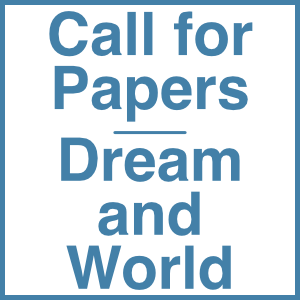
Katherine Swancutt (Project Lead of Cosmological
Visionaries) and Charles Stewart (University College London)
have put out a
Call for Papers for a
special issue on ‘Dream and World’ that they are editing
together.
An invited roundtable at Kew Gardens on ‘Rewilding, Ritual
Innovation, and the Myth-Histories of Plants in Southwest
China’ featured members of the Cosmological Visionaries
project. Zuoxi Yueqi (Cosmological Visionaries)
presented the first talk, titled ‘Myth-History, Ritual, and
Life-Force: Plants in Nuosu Cosmology’, while
Jan Karlach (Cosmological Visionaries) presented the
second talk, titled ‘Seeking Plants in the Pavement Cracks:
Innovating among Nuosu-Yi Ritualists in Urban Xichang’, and
Katherine Swancutt (Project Lead of Cosmological
Visionaries) gave the third talk, titled ‘Envisioning a
Rewilded Animism: The Maire’s Yew in Nuosu Imagination and
at the Kunming Botanical Garden’. The roundtable was
organised by Caroline Cornish (Royal Botanic Gardens, Kew)
and David Francis (University College London, School of
Oriental and African Studies, and Royal Botanic Gardens,
Kew). It was followed by a guided walk to the Rhododendron
Dell and the Great Pagoda at Kew.
IMAGE CREDIT: Jan Karlach. Dechang County, Sichuan
Province, China. August 2023.
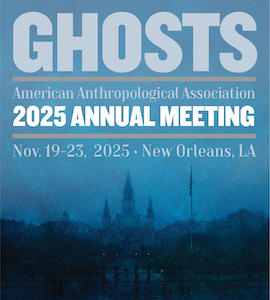
Katherine Swancutt (Project Lead of Cosmological
Visionaries) presented a talk called ‘Acclimatizing Local
Territorial Spirits to Ethnic Others: A Spectral Disjunction
Between Cosmologies in Southwest China’ and
Jan Karlach
(Cosmological Visionaries) presented a talk titled ‘“That
Pylon Reminds Me of an Effigy”: Nuosu-Yi Ghost-Work and
Energy Infrastructure in Liangshan, Southwest China’ at the
2025 American Anthropological Association Annual Meeting in
New Orleans. Both talks were part of a panel co-organised by
Diana Espírito Santo (Pontificia Universidad Catolica de
Chile) and Michele Feder-Nadoff (Independent Scholar) on
‘Monsters at the Crossroads: Resisting the Future through
Ghost-work’.

Katherine Swancutt (Project Lead of Cosmological
Visionaries) and Jan Karlach (Cosmological
Visionaries) presented a co-authored talk titled ‘Gardens of
Visions: Longing for a Rewilded World in Southwest China’ as
part of a panel organised by Zhang Lisheng (Peking
University) titled ‘Nostalgia and the Pragmatics of
Historicity: A Sinosphere Perspective’ at the East Asian
Anthropological Association Annual Meeting held at Zhejiang
University, China.
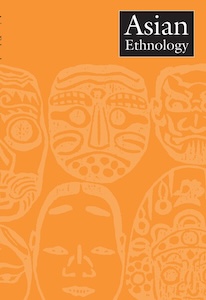
Timothy Thurston’s lively book on the Tibetan art of satire
and sarcasm known as zurza––literally ‘eating
sides’ in Tibetan––has been reviewed by
Katherine Swancutt (Project Lead of Cosmological
Visionaries) in
Asian Ethnology. Thurston’s book, the first monograph on zurza,
brings together materials on famous Tibetan cultural
producers, comedians, and intellectuals who have used
zurza since the 1980s to unleash new social
movements that critique problems in their own society.
Offering rich analyses of dokwa verbal sparring
matches, khashag comic dialogues,
garchung televised sketches, and
zheematam rap, the book reveals how many Tibetan
cultural producers unleash their own artistic visions of
zurza, of the social movements they feel it should
support, and of what zurza might achieve. The
self-reflexive contours of artistic works like this are
often what make them so deeply moving to people across
Southwest China.
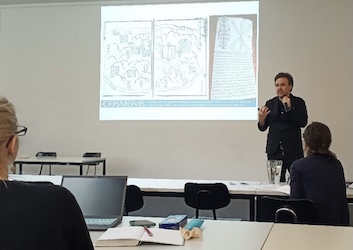
Jan Karlach (Cosmological Visionaries) presented a
talk on ‘The Fluctuating Linguistic Landscape of Xichang: On
the Back-and-Forth Between Chinese and Nuosu-Yi Languages in
Liangshan, Southwest China’ at a workshop at Freie
Universität Berlin devoted to ‘Current approaches on the
linguistic landscape: Case studies from Asia and Europe’.
Karlach’s talk discussed the ever-changing presence of the
Nuosu-Yi language in Xichang, the administrative seat of the
Liangshan Yi Autonomous Prefecture. Historically a military
garrison demarcated by a robust stone city wall, the main
language of its streets was various forms of Chinese, while
the dominant language of the surrounding mountains was
Nuosu-Yi. Since the establishment of the People’s Republic
of China in 1949, Nuosu-Yi, in its written and spoken forms,
gradually entered the gates of the town. Xichang proper then
started to expand beyond the wall of what began to be called
the ‘old town’. During the first half of the 2020s, the old
town was completely rebuilt by a developer contracted by the
local government, with the aim of attracting tourists to the
region. The reconstruction wiped out the Nuosu-Yi language,
which is now slowly and creatively finding its way back into
the streets of this ‘new old town’. Drawing on visual and
ethnographic evidence, Karlach’s talk addressed the
political, cultural, academic, and activist dimensions of
this remarkable back-and-forth fluctuation of Nuosu-Yi
vis-à-vis the dominant Chinese language. It also uncovered
meanings underpinning these shifts––and presented a vision
of Liangshan’s future linguistic landscape.

Jan Karlach (Cosmological Visionaries) presented a
talk on ‘“Bad Monks”, Ghosts, and Spirits in the Borderlands
of the Cool Mountains: The Transversality Between Daoism and
Nuosu-Yi Indigenous Cosmology in Southwest China’ at the
18th International Conference on Daoist Studies themed ‘Dao and the Dark Side: Demons, Death and Dangers’. The conference was held at the Transilvania University
of Brașov, in a city regaled as the ‘green capital of Romania’. Karlach’s talk analysed the longue durée process through
which Daoism and animism have shaped both each other and the
administrative, ethnic, and topographical borderlands of
Southwest China. The intertwining of these two cosmologies,
especially among the Nuosu-Yi of Liangshan, has generated
new ways of envisioning and managing climate change. Karlach
showed that, due to the flexibility of Nuosu-Yi animism,
local taboos surrounding sacred forests, mountains, and
other territories associated with deities, wild plants, and
animals are now harnessed in the service of environmental
protection. Similarly, natural disasters and health-related
problems in Southwest China are often addressed through
Daoist techniques, which, among other things, involve
summoning ancestral and animistic spirits to exorcise the
ghosts considered responsible for these disasters.

On 9 May 2025, a ‘Cartomancy Day’ held by the newly launched
Divination, Oracles, and Omens network at The Oxford
Research Centre in the Humanities (TORCH)
will feature a talk by Katherine Swancutt (Project
Lead of Cosmological Visionaries) titled ‘Destiny in the
Hands of a Parakeet: Half-Serious Divination at a Southwest
Chinese Travelling Fair’. The event will take place at the
School of Anthropology and Museum Ethnography, University of
Oxford, and will bring together specialists of card
divination to discuss the multitude of ways in which cards
may be used to shape people’s destinies. This is a follow-on
event to the exhibition titled ‘Oracles, Omens and Answers’ curated by Michelle Aroney (University of Oxford) and
David Zeitlyn (University of Oxford) in the ST Lee Gallery,
Weston Library, Bodleian, University of Oxford.
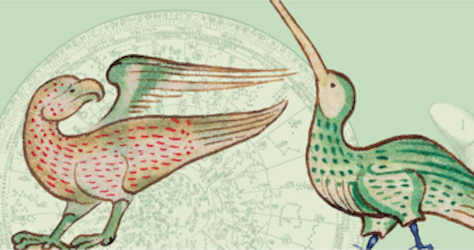

On 8 May 2025, the newly launched
Divination, Oracles, and Omens network at The Oxford
Research Centre in the Humanities (TORCH)
will host an invited roundtable on ‘Ingenuity in Divination: Creativity, Failure, and
Hunting Signs in Southwest China’ at the School of Anthropology and Museum Ethnography,
University of Oxford. The roundtable will feature talks by
Katherine Swancutt (Project Lead of Cosmological
Visionaries) who will speak on ‘The License to Improvise:
Freewheeling Imagination in Nuosu Divination’,
Jan Karlach (Cosmological Visionaries) who will speak
on ‘Divination and Performative Failure: When Nuosu-Yi
Rituals Go Wrong’, and Zuoxi Yueqi (Cosmological
Visionaries) who will speak about ‘The Hunter’s Path:
Divining Debts and Fortuitous Tracks in Southwest China’.
This event follows on from the exhibition titled ‘Oracles, Omens and Answers’, curated by Michelle Aroney (University of Oxford) and
David Zeitlyn (University of Oxford) at the ST Lee Gallery,
Weston Library, Bodleian, University of Oxford (running from
6 December 2024 – 27 April 2025).
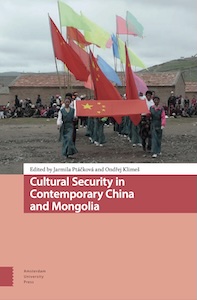
‘Against the Flattening of Ridges and Ravines: (Dis)locating
Cultural Security through Writing with the Yi of Southwest
China’ has been published by
Jan Karlach (Cosmological Visionaries) in
Cultural Security in Contemporary China and
Mongolia, edited by Jarmila Ptáčková and Ondřej Klimeš for
Amsterdam University Press. The chapter discusses the Yi
nationality, an ethnopolitical category constructed during
the 1950s nationality recognition campaign, which is
typically portrayed by the Chinese state and its citizens as
a coherent ethnic group with shared cultural
characteristics. This clichéd depiction reflects the state’s
top-down cultural security imperative to present each
nationality as a building block of the Chinese Nation.
However, the official Chinese narrative of ethnic coherence
starts to unravel when viewed from a bottom-up perspective
built on the everyday practices of the Yi and non-Yi elites
as well as of other stakeholders within the Yi nationality.
Drawing on longitudinal and multi-sited anthropological
fieldwork, Karlach offers three ethnographic vignettes from
Sichuan, Yunnan, and Guizhou provinces that reveal how
ritual practitioners and ordinary people from different Yi
ethnic sub-branches and localities seek to master the
hegemonic voice within a wider “Yi-osphere.”
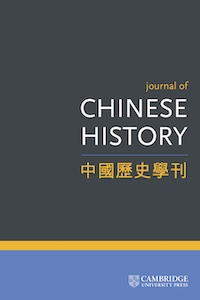
‘Between Officialdom and Nativeness: Mutually
Appropriating the State and the Nuosu-Yi Native
Chieftain Clans in Southwest China’ has been published as a FirstView article online in the
Journal of Chinese History
中國歷史學刊 by Jan Karlach (Cosmological
Visionaries). The article shows that Southwest China is a
region that has been perhaps uniquely shaped over the
longue durée by mutual appropriations of status,
authority, land, material culture, genealogies, and
cultural-historical identities. Drawing on both ethnographic
fieldwork and the official and unofficial Chinese and
Nuosu-Yi textual evidence, Karlach offers a new view of how,
during the Ming and Qing dynasties, native officials were
shaped by their efforts at appropriating elements of
officialdom (responsibility towards the court) and
nativeness (adherence to local customs). The historical
textual-cum-anthropological analysis builds on C. Patterson
Giersch’s notion of the ‘middle grounds’ between the Chinese
state and its borderland peoples to reveal ‘further ways’ of
uncovering the history of their history. Here, mutual
appropriations of officialdom and nativeness have led to
specific forms of acculturation that are neither linear nor
irreversible. Cultural hybridizations underpin the current
Yi core identity and culture in Liangshan today.
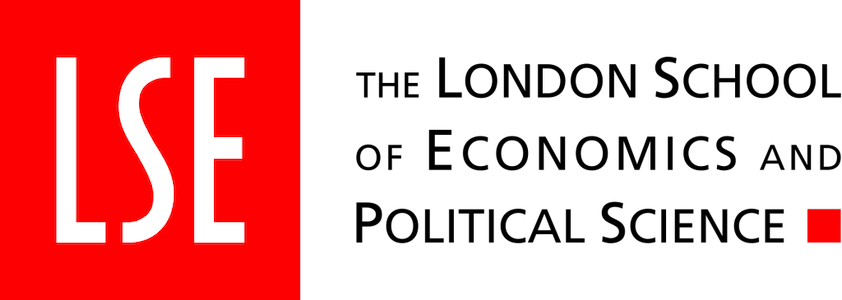
Cosmological Visionaries team members took part in a recent
workshop on ‘Experiencing Essence in Chinese Religions’
hosted by the Department of Anthropology, London School of
Economics and Political Science.
Katherine Swancutt (Project Lead of Cosmological
Visionaries) presented a talk on ‘The Danger of Essence and
the Essence of Danger: Visions as an “Ethnographic Fact” in
Southwest China and Beyond’ and
Jan Karlach (Cosmological Visionaries) presented a
talk on ‘Nuosu-Yi Purities as Localized Essences’. The event
was filled with exciting debates.
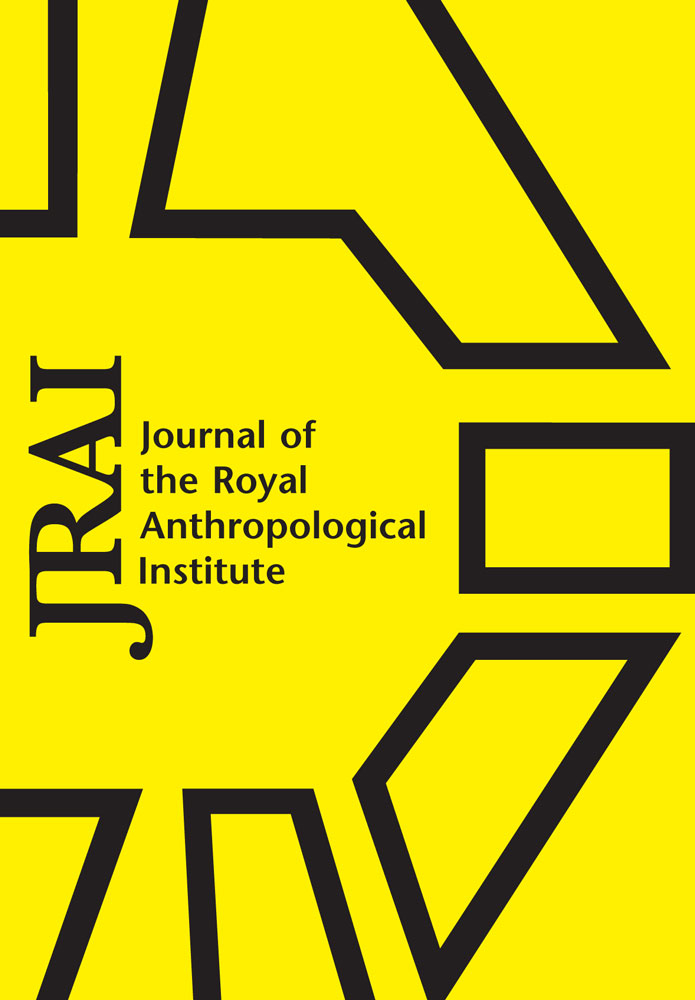
‘Mythogeographies of anthropological knowledge: writing
over the lines and footsteps of history in Southwest
China’ has been published online in the
Journal of the Royal Anthropological Institute
by Jan Karlach (Cosmological Visionaries), and will
appear in print in Volume 31, Issue 3, in September 2025. In
the article, Karlach delves into the field diary of Ma
Changshou – a major Chinese ethnohistorian and social
anthropologist active between the 1930s and 1960s – to show
how his journeys through Liangshan, a mountainous land in
Southwest China inhabited by the Nuosu-Yi, led to a new kind
of anthropological knowledge. Retracing Ma’s journey in
mythogeographical fashion, Karlach proposes that the
travel-fieldwork trajectories of China’s Republican-era
social scientists and their interpretation of data obtained
from native chieftains, bimo ritualists, and other
members of prominent Nuosu-Yi clans have shaped today’s
knowledge of Nuosu-Yi history, society, and culture.
Notably, Ma’s mythogeography fleshed out two different
essentialized but intertwined ways of seeing the past: that
of state-bureaucratic societies and that of genealogy-based
societies like the Nuosu-Yi. Mythogeographies like this can
give rise to more than new ways of performing genealogies;
they can throw light on the anthropo-history of China and
the world at large.

Members of the Cosmological Visionaries team recently
featured in a workshop on
‘Visions and Indigenous Scholarship in Inner and
Southeast Asia’
hosted by the Department of Mongolian, Korean, and
Vietnamese Studies, Masaryk University, in Brno, Czech
Republic. Katherine Swancutt (Project Lead of
Cosmological Visionaries) gave the keynote lecture, titled
‘Visions, Visionaries, and the Visual: The Making of
Indigenous Scholarship in Southwest China’.
Jan Karlach (Cosmological Visionaries) presented an
invited talk on ‘Animistic Rituals or Scholarly Knowledge?
Building Visions from Nuosu-Yi Scroll-Books’ and
Zuoxi Yueqi (Cosmological Visionaries) presented an
invited talk on ‘Parallel Cosmologies: Mapping Nuosu-Yi
Collaborative Visions and Textual Interpretations’. The
workshop unleashed many exciting discussions on the
relationship between visions and indigenous scholars.
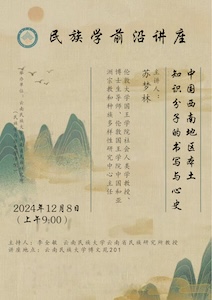
Katherine Swancutt (Project Lead of Cosmological
Visionaries) presented an invited lecture titled ‘From the
Depths of Our Minds and Writings: Giving Voice to Guardian
Spirits in Southwest China’
(中国西南地区本土知识分子的书写与心史), which was the second
‘Frontiers of Ethnology’ (民族学前沿进座) Lectures Series
for the Yunnan Institute for Ethnic Studies, Yunnan Minzu
University. This weekend lecture brought out a highly
engaged audience with marvellous discussions.

An invited roundtable on ‘Cosmoecological Dilemmas: Science,
Spirits, and Society in Southwest China’
(宇宙生态之困:中国西南地区的科学、神灵与社会) was held by
members of the Cosmological Visionaries team as a special
weekend event with Yunnan University.
Katherine Swancutt (Project Lead of Cosmological
Visionaries) presented an invited lecture on ‘Satisfying
Spirits and Science: “Taking the Straight and Even Road” in
Western Liangshan’ (互通的神灵与科学:“只走平坦路”
的西部凉山经验), while Jan Karlach (Cosmological
Visionaries) presented an invited lecture titled
‘Eco-infrastructural Revolution in Liangshan: People,
Spirits, and Places on the Move’
(凉山生态基建革命:流动中的人、神灵与地域), and
Zuoxi Yueqi (Cosmological Visionaries) presented an
invited lecture called ‘Calculating Hunting Debts:
Sustainability, Spirits, and the Making of a Scientific
Ecology in Eastern Liangshan’
(衡量猎债:凉山东部的生态可持续性、神灵与 “科学”). This
roundtable, held over the weekend, attracted a packed
audience with highly stimulating discussions.
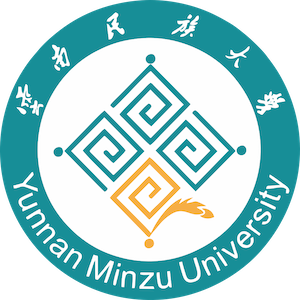
Three members of the Cosmological Visionaries project
presented invited talks in the ‘Cosmology, Imagination, and
Modernity among the Peoples of Southwest China Academic
Research Exchange Forum’ (中国西南人群的宇宙观,
想象力与现代性学术研究交流论坛) with Yunnan Minzu
University.
Katherine Swancutt (Project Lead of Cosmological
Visionaries) spoke on ‘Unleashing the Imagination of Car
Window Anthropology’ (释放想象之车窗人类学),
Jan Karlach (Cosmological Visionaries) spoke on
‘Mythogeographies of Anthropological Wandering’
(“神活地理”:人类学之游于思), and
Zuoxi Yueqi (Cosmological Visionaries) spoke on
“Walking in Anthropological Circles” (凉山人类学之困与解).
This weekend forum was filled with exciting talks and
dialogues.
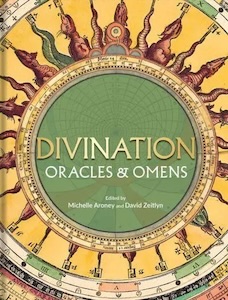
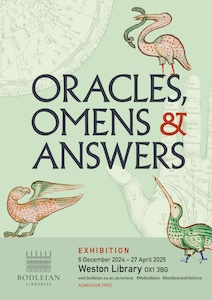
Two chapters by Katherine Swancutt (Project Lead of
Cosmological Visionaries) have appeared in Michelle Aroney
and David Zeitlyn’s edited volume
Divination: Oracles & Omens, published by Bodleian Library Publishing. This highly
accessible volume accompanies the exhibition
Oracles, Omens and Answers, which runs from 6 December 2024 to 27 April 2025 at the
ST Lee Gallery, Weston Library, Oxford, England. Filled with
images, the volume offers a comparative lens onto multiple
forms of divination from around the world and across time.
Swancutt’s chapters invite readers to delve into two common
and lively forms of divination among the Nuosu of Southwest
China and Buryat Mongolians.

Katherine Swancutt (Project Lead of Cosmological
Visionaries), Jan Karlach (Cosmological Visionaries),
and Zuoxi Yueqi (Cosmological Visionaries) are
displaying photographs, film, audial recordings, and
storyboard materials as part of the
‘Vital Signs: Another World is Possible’
exhibition at the Science Gallery London, which runs from 14
November 2024 to 17 May 2025. Their display
showcases Nuosu visions of climate change
from the COSMOVIS project.
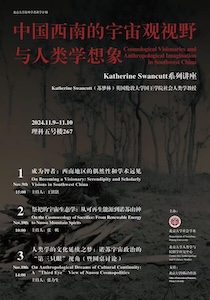
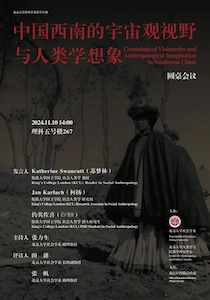
Katherine Swancutt (Project Lead of Cosmological
Visionaries) presented three invited lectures to the Center
for Anthropology and Folklore Studies, Department of
Sociology, Peking University: ‘On Becoming a Visionary:
Serendipity and Scholarly Visions in Southwest China’
(关于成为智者:西南地区的偶然性和学术远见), ‘On the
Cosmoecology of Sacrifice: From Renewable Energy to Nuosu
Mountain Spirits’
(关于祭祀的宇宙生态学:从可再生能源到诺苏山神), ‘On
Anthropological Dreams of Cultural Continuity: A “Third Eye”
View of Nuosu Cosmopolitics’ (关于人类学的文化延续之梦:
诺苏宇宙政治的“第三只眼”视角). The third lecture formed part
of an invited roundtable on ‘Cosmological Visionaries and
Anthropological Imagination in Southwest China’
(中国西南的宇宙观视野与人类学想象) that included an invited
talk by Jan Karlach (Cosmological Visionaries) titled
‘Yi Cosmology and its Absorption of Science: On the Meeting
of Local and Global Knowledges in Southwest China’
(彝族宇宙论及其对科学的吸纳:关于西南地区本土与全球知识相遇)
and an invited talk by Zuoxi Yueqi
(Cosmological Visionaries) titled ‘Cosmology, Myth-history,
and Turning Chaos into Order with Nuosu-Yi Scholars’
(与诺苏彝族学者同行:宇宙论,神活历史以及混沌的秩序化). This
weekend event attracted a wonderfully engaged audience and
excellent discussions.
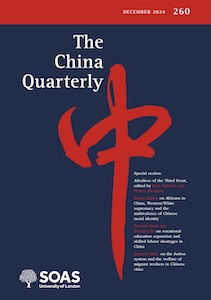
Robin Visser’s marvellous book about the ecoliteratures of
China and Taiwan has been reviewed by
Katherine Swancutt (Project Lead of Cosmological
Visionaries) in
The China Quarterly. The book throws light on how Indigenous, Indigene, and
ethnic majority writers from Southwest China, Inner
Mongolia, Xinjiang, Tibet, and Taiwan envision new ways of
relating to their unknown ecological futures and the
nation-states in which they live. Visser’s important
discussion of Indigenous creativity and future-oriented uses
of technology – which cover everything from renewable energy
sources to the production of ecoliterature itself – resonate
with the goals of the ‘Cosmological Visionaries’ project.
Her book sets out to decentre both colonial and popular
assumptions about Indigenous people, lives, and planetary
visions. Indigenous ecoliterary visions and poetry have
increasingly become part of the animistic repertoire in
Liangshan, which inform new approaches to managing the
ecology in Southwest China.
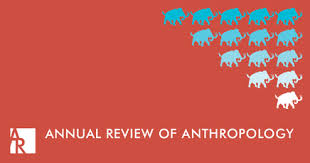
‘Dreams, Visions, and Worldmaking: Envisioning
Anthropology Through Dreamscapes’
by Katherine Swancutt (Project Lead of Cosmological
Visionaries) has been published in
Annual Review of Anthropology,
Volume 53. Her article asks: What does it mean to envision
or dream a world into existence? Dreams and visions are
often deeply personal and private experiences, but they also
open up social spaces for worldmaking. From Australian
Aboriginal ‘Dreamtime’ to the ethnographic dreams of
anthropologists and their research partners, many dreams and
visions are entangled with the historical and analytical
trajectories of anthropology. Swancutt sets out in this
article to stretch further the anthropological imagination
about the kinds of dreams and visions that may emerge from
any dreamscape. To this end, she shows that the anthropology
of dreams and visions is built on more than the
interpenetration of dreaming and waking life, metaphysical
questions, problems of communication and interpretation,
active or passive dreaming, the powerful idioms that dreams
afford for collective visions, or nightmares and
metaphorical dreaming. Myriad dreams and visions also unfold
as what she calls cosmological visions that shape
anthropology and vice versa.

Katherine Swancutt (Project Lead of Cosmological
Visionaries) presented the invited talk ‘Hidden Visionaries:
Uncovering Guardian Spirits, Indigeneity, and Historically
Situated Consciousness in Southwest China’ for the symposium
‘An Anthropology of the Imaginal: Attending to What Seeks
Expression in Mindsets and Social Conditions’ held at the
Institute of Anthropological and Spatial Studies, Research
Centre of the Slovenian Academy of Arts and Sciences. Her
talk showed that many scholars among the Nuosu of Southwest
China set out to produce new visions that can make the leap
from their own scholarly work to wider social life. Key to
these scholarly visions is not only their emotively moving
qualities but also the ways in which they evoke the visual
side of life more generally. Some visionary Nuosu are adept
at uncovering guardian spirits—which take specific
visual forms—and integrating them into a wider
understanding of all things Nuosu. Many Nuosu scholars tend
to favour their own visions, while still promoting the value
of personal visionary experiences and of maintaining a
pluralistic vision of their indigeneity.

Jan Karlach (Cosmological Visionaries) is giving an
invited talk ‘Měnící se Čína: kultura, etnicita a ekologie
na příkladu jihozápadní oblasti (China in Transformation:
Culture, Ethnicity, and Ecology in the Southwest)’ at the
Ministry of Foreign Affairs of the Czech Republic. His talk
will discuss how, until recently, the hinterlands of
Southwest China were considered exotic and, compared to the
coastal provinces, underdeveloped and difficult to access.
Yet thanks to its ethnic diversity and the ethnographic
research of Chinese anthropologists, Southwest China played
a crucial role in the construction of Chinese national
identity in the 1930s and 1940s. It furthermore became known
as one of the most biodiverse places in the world. Over the
last fifteen years, however, China’s central and local
governments have invested massively in highway, rail,
aviation, energy and internet infrastructure. As these
investments took shape, they brought unprecedented changes
not only to the cultures of the local non-Han ethnic groups
in Southwest China, but also to the science, education and
overall position of this region within the entire country.
Some of these changes are evident in how extreme climate
change is being managed now, as many of its inhabitants set
out to develop adaptation strategies in collaboration with
the state. Southwest China therefore offers a number of
challenges, but also opportunities for international
cooperation.
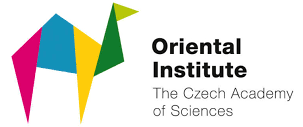
Katherine Swancutt (Project Lead of Cosmological
Visionaries), Jan Karlach (Cosmological Visionaries),
and Zuoxi Yueqi (Cosmological Visionaries) will
present a lecture titled
‘Three Cosmological Visions of Climate Change: Mountain
Spirits, Scientific Rewilding, and Sacred Forests in
Southwest China’
on 2 July 2024 at the Oriental Institute of the Czech
Academy of Sciences. Their lecture, which will be part of
the Power Seminar Series, reflects on Southwest China’s
complex topography, rich biodiversity, and intricate ethnic
composition. For centuries, the towering mountain ridges and
deep valleys of this geographic region have made its
indigenous inhabitants especially prone to extreme weather.
Disasters caused by landslides, floods, winds, and drought
are well-recorded in history and have only increased since
imperial times due to migration and the uptake of
technologies that led to large-scale deforestation. Recent
decades have seen rapid industrialization and the
acceleration of climate change. Yet local scientists,
governments, and indigenous communities all have their own
ways of managing their environments. Their visions of a
future rooted in diverse cosmologies throw valuable light
not only on how the post-carbon world might look but also on
how the relationships between science, animistic religion,
and the politics of climate change are unfolding on local
and global scales. The three anthropologists on the
‘Cosmological Visionaries’ project––Swancutt, Karlach, and
Yueqi––will discuss their collaborations with scientists and
Nuosu-Yi animistic people in three different locations.
Multiethnic Ninglang County lies at the foot of the
Himalayan massif, and is part of the Hengduan Mountains, one
of the most biodiverse regions in the world. Its inhabitants
give voice to priestly texts when holding sacrifices to
mountain spirits that have been disturbed by the build-up of
windfarms, solar farms, and electric masts. Their scriptural
voicings bring to life their dreams of maintaining the
mountain spirit’s protection in the face of natural
disasters. In Kunming, the capital of Yunnan Province,
scientists around the heavily polluted Dian Lake experiment
with (re)building the natural environment through a twofold
process that starts with the ‘gardenification’ of natural
habitats and finishes with their (re)wilding. Finally, the
religious specialists of the Cool Mountains (Liangshan) in
neighbouring Sichuan Province seek to preserve their sacred
forests with complex rituals that are meant to reduce the
man-made risk of soil erosion. Each of these strategies can
shape our thinking about how we relate to our own immediate
environments and how we might ensure the sustainable future
of the planet.
Recordings of these lectures have kindly been made available
by the Oriental Institute of the Czech Academy of Sciences
on their YouTube channel:
Jan Karlach
Cosmological Visions of Ecology (Shengtai 生态):
Gardenification of Ecosystems and Scientific Rewilding
in Southwest China
Zuoxi Yueqi
Nuosu-Yi Cosmological Concept of Sacred Forests and the
Relevant Rituals in Liangshan
Katherine Swancutt
'Do Not Disturb the Mountain Spirit': Script, Voice,
and Visions in Southwest China
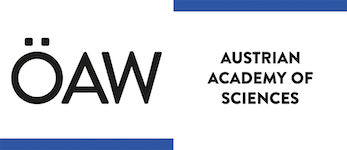
Katherine Swancutt (Project Lead of Cosmological
Visionaries) will present an International Guest Lecture
titled
‘Melding Script into Voice: The Social Lives of Dreams,
Mountains, and New Energy Technologies in Southwest
China’
on 4 July 2024 at the Institute for Social Anthropology,
Austrian Academy of Sciences. Her lecture will explore how
the melding of script and voice brings to life the dreams of
religious specialists, ordinary people, and spirits.
Scriptural voicings among the Nuosu, a Tibeto-Burman group
of Southwest China, often unfold as riffs on the religious
texts of their animistic priests, which may be ritually used
to make dreams and wishes a reality. One common dream
fulfilling ritual across the Liangshan mountains is the
sacrifice to the local mountain spirit, which many Nuosu
beseech to grant them health, prosperity, fertility, growing
numbers of livestock, strength in every endeavour, wealth,
success in business, feasts with neighbours, a lack of
disputes, and to have their speech and actions protected.
Going further, many Nuosu ask their mountain spirit to stay,
rather than leave the area, even when they dig up or plough
into its territory. Disturbing the mountain spirit may cause
it to retaliate against people, their grains, and
livestock––or to simply withdraw its protection by ‘moving
house’. Yet keeping mountain spirits in place has become
increasingly challenging as new energy technologies such as
wind turbines and solar panels are installed deep into the
earth to manage climate change. This lecture shows how
several ordinary Nuosu men gave scriptural voice to a
priestly text during a sacrifice to their local mountain
spirit, which supported their own dreams of being protected
by it well into the future.
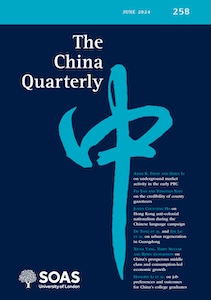
Stevan Harrell’s watershed volume about the ecological
history of modern China – including its relationship to the
cosmologies of China Proper, Central Asia, and ‘Chinese
Zomia’ inhabited by the Nuosu of the Liangshan mountains –
has been reviewed by Katherine Swancutt (Project Lead
of Cosmological Visionaries) in
The China Quarterly. The book explores China’s highs, lows, and remarkable
ingenuity in tackling ecological challenges from the
founding of the People’s Republic to the present. Harrell’s
vibrant discussion of the ecological landscapes of China
dovetails with the core theme of the ‘Cosmological
Visionaries’ project. His book shows that an ecology is, at
heart, an assemblage of people, animals, plants, social
institutions, family relations, politics, art, religion, and
more that is shaped as much by its inner dynamics and
resilience as by the forces that lie outside it. Arguably,
visions for managing climate change are part of the
assemblage that makes up any ecology – which points to the
potential for animistic visions in Liangshan to create new
modes of ecological recovery in Southwest China.
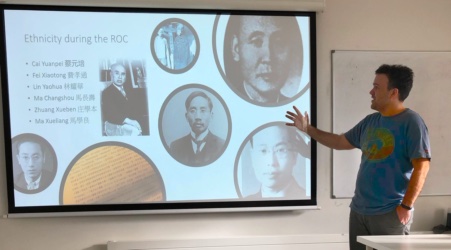
The guest lecture by Jan Karlach (Cosmological
Visionaries) on ‘Ethnicity and Literature – The (Nuosu) Yi
of Southwest China’ reflected on the indigenization of the
concept of ‘ethnicity’ in late imperial, republican, and
communist China with reference to literary works by the
Nuosu-Yi of Sichuan Province. Yi literature emerged from the
ritual lives of Nuosu-Yi ritual specialists and in recent
decades it has shaped the construction of Yi ethnicity.
Drawing on the poetry of Aku Wuwu, its performances, and the
short prose of Yiwu, Karlach discussed the intricate
relationships between Nuosu-Yi ethnicity, literature, and
religion.
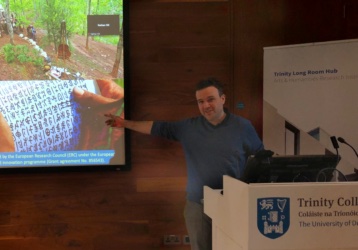
In his seminar ‘“Science Scared the Ghosts and Spirits
Away”: Mountain Worship, Catastrophe Prevention and
Environmental Protection among the Nuosu-Yi of Liangshan’
presented at Trinity College Dublin,
Jan Karlach (Cosmological Visionaries) reflected on
the unprecedented changes that the Chinese state-driven
poverty alleviation campaign has brought to the Liangshan
mountains of Sichuan Province. The modernization push in
China has led to numerous environmental
challenges––including the shift it has caused in Nuosu-Yi
thinking about the environment. As indigenous forms of
knowledge are co-opted into the Chinese state’s ‘scientific’
approach to environmental protection, so the Nuosu-Yi are
choosing to turn away from their indigenous visions of the
world and towards Chinese economic development. This has
given rise to a remarkable paradox in which Nuosu-Yi
practices of mountain worship are often
disentangled from environmental protection
policies. Listen to the talk
here.

Katherine Swancutt (Project Lead of Cosmological
Visionaries) presented ‘Dreaming Big and Small: The
Sublimation of Art and Scholarship in Southwest China’ at
the Religion and Society Seminar in the Department of
Theology and Religion, Durham University. Discussing new
research on dreaming among the Nuosu of Southwest China, she
compared the big and small dreams of ethnohistorians and
musicians who seek to transmit Nuosu culture across the
generations. Swancutt’s talk highlighted how artistic acts
of sublimation may be used to promote cultural continuity.
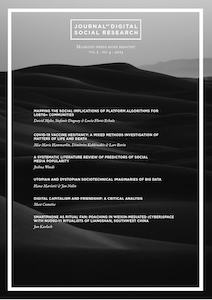
Smartphone as Ritual Fan: Poaching in Weixin-mediated
(Cyber)space with Nuosu-Yi Ritualists of Liangshan,
Southwest China
has been published in the
Journal of Digital Social Research
(volume 5, issue 4). The article shows how the Nuosu-Yi
literati-ritualists of Southwest China, known as ‘bimo’, use
the ubiquitous Chinese all-in-one Weixin (WeChat) app in
ways unforeseen by their developers.
Jan Karlach (Cosmological Visionaries) takes a
‘nethnographic’ approach in the article, which features an
ethnography of culturally conditioned simultaneous online
and offline practices. He shows that bimo use their
smartphones to poach the property of those who designed the
app primarily for the Chinese-speaking majority. Both the
bimo and the technology they use, then, are transformed by
the modernization and technologization push of the Chinese
authoritarian state. The resultant techno-culture does more
than build upon, reinvent, develop, and reinforce the
allegedly diminishing Nuosu-Yi folkways and their inter-clan
competition – it feeds the state-approved Yi folklore. Here,
the top-down computerization of society and the bottom-up
socialization of technology is intrinsically connected to
the culturally conditioned use of technology in everyday
life.
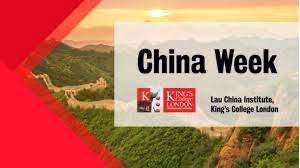
Katherine Swancutt (Project Lead of Cosmological
Visionaries) joined the China Week panel of experts,
moderated by Thomas White of the Lau China Institute at
King’s College London, for an evening’s discussion of
‘Minority Education in the Xi Era’. The panel provoked
exciting reflections from faculty and students on this
all-important theme.

Katherine Swancutt (Project Lead of Cosmological
Visionaries) gave a keynote lecture on ‘Envisioning the
Future as a Complete Cosmology: Power, Value, and Autonomy
in Animistic Approaches to Science’ at the British
Association for the Study of Religions (BASR) annual
conference under the 2023 theme of ‘Environmental Endings
and Religious Futures’ at Clare College, University of
Cambridge. Presenting some of her latest work on the
relationship between cosmology and ecology in Southwest
China, Swancutt showed how animistic ways of engaging with
science may sometimes unexpectedly strengthen indigenous
values and autonomy.
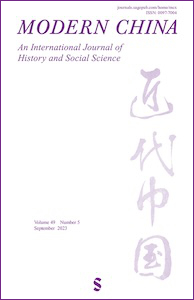
Hearths, Mythologies, and Livelihood Choices: Exploring
Cultural Change under Poverty Alleviation with the
Nuosu-Yi of Liangshan
has been published in
Modern China (volume 49, issue
5). In late 2020, the Chinese Communist Party triumphantly
declared an end to (absolute) poverty in the country. As one
of the most poverty-stricken areas of China, the Liangshan
Yi Autonomous Prefecture in Sichuan province came into the
spotlight both domestically and internationally.
International media reports, some of which embedded
fragments of the author’s expert opinion, launched a
discursive counter-offensive. Both sides incorporated
anecdotes told by Nuosu-Yi individuals. Interested in
discursive hegemony rather than informants’ voices, however,
both sides also somewhat conveniently failed to grasp the
complex interplay between the everyday lives of Nuosu-Yi and
the state-driven poverty alleviation campaign. Focusing on
the creative livelihood strategies and choices reflected in
the everyday practical and ritualistic treatment of the
traditional Nuosu-Yi hearth,
Jan Karlach (Cosmological Visionaries) analyses the
tensions between (re)presentations of poverty and the
Nuosu-Yi cosmology, which may absorb these same tensions and
facilitate the preservation and/or reinvention of Nuosu-Yi
lifeways.
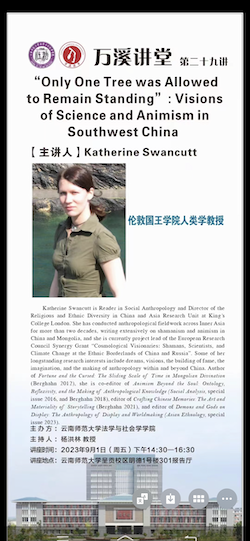

While on fieldwork with the project team in Southwest China,
Katherine Swancutt (Project Lead of Cosmological
Visionaries) presented a lecture called ‘“Only One Tree was
allowed to Remain Standing”: Visions of Science and Animism
in Southwest China’ at Yunnan Normal University in Kunming,
China. Her lecture reflected on the complex relationships
between a new animistic vision used to tackle deforestation
and animistic counter visions in support of logging among
the Nuosu in Yunnan province.
Jan Karlach (Cosmological Visionaries) presented some
opening remarks for the lecture, and together with
Swancutt’s talk, this provoked much stimulating debate with
faculty members and students.
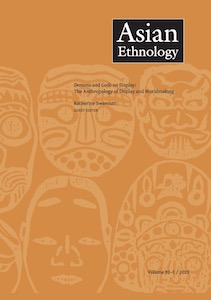
Edited by Katherine Swancutt (Project Lead of
Cosmological Visionaries),
‘Demons and Gods on Display: The Anthropology of
Display and Worldmaking’
(volume 82, issue 1 of
Asian Ethnology) brings
together eight scholars of Asia who show how display
underpins new imaginaries of the cosmos in such diverse
settings as a shamanic ceremony or temple festival (Laurel
Kendall and Ni Wayan Pasek Ariati), a procession of demon
puppets (Kari Telle), the parade of a goddess (Teri Silvio),
the strange company of gods and flags on an altar (Janet
Alison Hoskins), the unfurling of a flag that evokes moral
ideals of cultural heritage and plurality (Heonik Kwon and
Jun Hwan Park), and the competitions, pageants, and rituals
held to repay debts to a sky god (Katherine Swancutt).
Covering Korea, Bali, Indonesia, Taiwan, Vietnam, Southwest
China, overseas Asian communities in the USA, and the
travels that certain eminent shamans have made from Asia to
worldmaking events such as the World’s Fair, the
contributors to this special issue explore how display
becomes transformative for people, spirits, gods, demons,
and their effigies or emblems in religious and museum
contexts alike.
Swancutt’s
‘Guest Editor’s Introduction’
positions the special issue as a field-setting volume on
display and the creative process of worldmaking. The special
issue introduces ‘the anthropology of display’ as a subfield
in its own right that illuminates how people, spirits, gods,
demons, ghosts, and their ritual props, offerings, effigies,
or emblems manifest their powers and presence. A display is
not just the static or unmoving framing of an image that
invites contemplation rather than participation; it may
unfold as one of the many moving, lively, and performative
parts in a public event that generates deeply recursive
imaginaries of the cosmos. Bringing the anthropology of
religion, magic, exchange, art, and performance into
conversation with museum anthropology, the special issue
shows that display is often used to push at the edges of the
social and cosmic order. People and spirits may harness the
power of display to steer rituals, ceremonies, and festivals
in their preferred directions. Displays of this sort may
unleash moral ideals of cultural heritage and plurality,
aesthetic deliberations about the future, and new
anthropological ways of envisioning the human and
otherworldly.
Many of these themes are addressed in Swancutt’s
‘The Time of Red Snowfall: Steering Social and Cosmic
Renewal in Southwest China’, which shows how the Nuosu, a Tibeto-Burman group of
Southwest China, celebrate their annual Fire Festival with
vibrant displays that evoke the myth-historical blunder of a
hero killing a spirit. To atone for this blunder, they
compete in arts and sports before spectators, judges, and
the sky god, who receives their displays as ritual
blandishments and expresses his satisfaction by sparing
lives. These two-way displays typically continue until Nuosu
pay their sacrificial debt to the sky god through the ritual
for ‘the descent and exchange of the soul’. But many Nuosu
approach the Fire Festival differently in the northeastern
Liangshan mountains, where they seek to avoid summoning red
snowfall, a euphemism that refers to a generations-old war,
extreme bloodshed, and perhaps even the origins of
humankind. Here, Nuosu call their sacrifices to the sky god
‘turning back the enemy’ and move their competitions to
unconventional days that fall outside of the Fire Festival’s
celebratory window. By steering this season of social and
cosmic renewal in a prosperous direction, Nuosu across
Liangshan engage in worldmaking acts that show the
conceptual value of the anthropology of display.
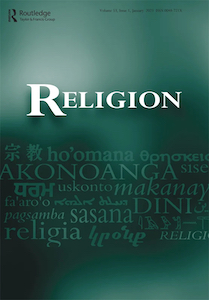
‘Moved to Distraction: The Ritual Theatre of the Fire
Festival in Southwest China’
by Katherine Swancutt (Project Lead of Cosmological
Visionaries) has been published in
Religion, Volume 53, issue 3,
as part of a special issue titled ‘Festivals in Asia:
Patronage, Play, and Piety’ edited by Mark Teeuwen, Moumita
Sen, and Aike P. Rots. The article asks what it means to be
‘moved to distraction’ by ritual theatre. Each year the
Nuosu, a Tibeto-Burman group of Southwest China, may be
moved by their Fire Festival competitions, pageantries and
‘extravaganzas’, but not necessarily by the Chinese
nationalist elements within them. Simulating the pageants of
Chinese megacities, Fire Festival extravaganzas meld Nuosu
myth-history, animistic imagery, and ‘minority culture’ with
the Chinese dream of prosperity, the party-state’s efforts
at generating cohesion, and the soft power of stadium rock
concerts. Many Nuosu are abducted into the mood of
performances that evoke what is archetypically human for
them, including their myth-historical relationships to
Tibetans and Han Chinese. But while some Nuosu may
experience frisson and the giddy sense of being moved to
distraction by spectacles that celebrate China as a
socialist superpower, many turn away from ritual theatre
that challenges their cosmopolitics and their sense of what
it means to be human.
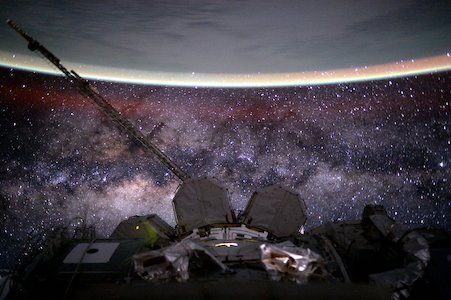
The King’s College London
Net Gains? Living Well with Technology
series has just posted a new feature by
Tony Milligan (Cosmological Visionaries) on ‘How space exploration is bringing us back down to
Earth’. This short feature explains why our anthropocentric
assumptions about outer space — and our over-separation of
Earth and space — may be making it difficult to think of
Earth in planetary terms. Over-separation involves a ground
bias which compromises our ability to respond to climate
change. Milligan briefly explains his concept of ground bias
as a tendency not only to be skeptical about the value of
conducting planetary science elsewhere but also to focus our
attention upon where the humans are at the expense
of a larger set of planetary processes on Earth.
IMAGE CREDIT: NASA/Scott Kelly, ‘The places we call
home’ (2021)
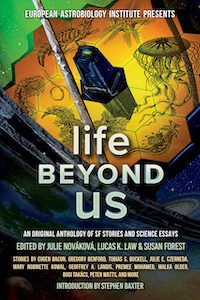
To celebrate Earth Day (世界地球日) 2023, a new collection
of Science Fiction Stories and linked scientific
commentaries has been published by the European Astrobiology
Institute. The volume includes a short story by award
winning African Australian author Eugen M. Bacon and a
commentary by Tony Milligan (Cosmological
Visionaries). Bacon’s story, ‘Human Beans’, looks at issues
of exclusion, gender, movement, and the transfer of life
from one place to another and better place. Milligan’s
commentary, ‘Microbial Life and Belonging’, considers a scenario in which Bacon’s transfer of life
goes wrong and only microbes survive. This leaves us with
questions about how far down we can take belonging, and
exactly what it is that we are looking for when we search
for life that belongs to another world. The collection,
Life Beyond Us: An Original Anthology of SF Stories
and Science Essays
is edited by science fiction authors Julie Nováková, Lucas
K. Law, and Susan Forest and has an introduction by Stephen
Baxter. Bacon has commented that ‘Tony and I connected with
such synergy, and we’ve never met! I saw his scientific
essay on my fiction “Human Beans” and went, yes! He got me’.
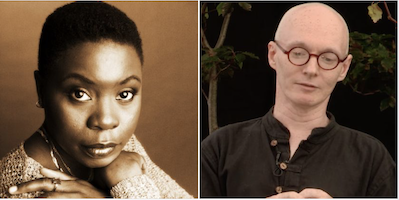
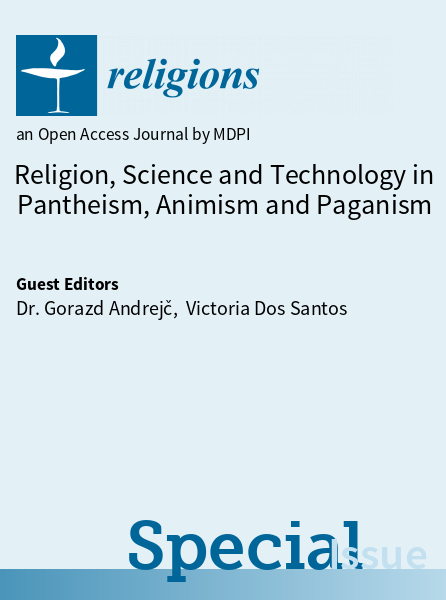
‘Of Cosmological Visions and Creativity: Shaping
Animism, Indigenous Science, and Forestry in Southwest
China’
by Katherine Swancutt (Project Lead of Cosmological
Visionaries) has been published in
Religions, Volume 14(4), 449,
as part of a special issue titled ‘Religion, Science and
Technology in Pantheism, Animism and Paganism’ edited by
Gorazd Andrejč and Victoria dos Santos. The article, which
came out of a keynote lecture delivered at the University of
Groningen on 23 September 2022, asks: How do cosmological
visions unsettle animistic and scientific ways of
approaching the world? Whereas ‘cosmovisions’ have the
narrow meaning of ‘worldviews’, people unleash new
‘cosmological visions’ through the creative act of relating
to—and simultaneously dismantling—their constructs of the
world at large. Drawing on ethnography of the Nuosu, a
Tibeto‑Burman group of Southwest China, the article shows
how an ethnohistorian and a priest set out, at the request
of a local official, to address deforestation with a
cosmological vision built upon animistic, indigenous
scientific, social scientific, and natural scientific
sensibilities. Holding sacrifices to land spirits across the
Liangshan mountains of Yunnan province in the mid‑2000s,
they urged Nuosu to refrain from cutting down trees. Many
Nuosu in the lumber trade responded with a counter vision
that showed respect for land spirits but an unprecedented
detachment from the world in animistic‑cum‑scientific terms.
Cosmological visions like these proliferate among Nuosu,
encouraging them to experiment with everything from testing
the patience of land spirits to undercutting the science
behind China’s forest protection policies. Here, creativity
opens up new ways of envisioning indigenous autonomy and
what it means to be alive to the world as an animist, a
scientist, or both.
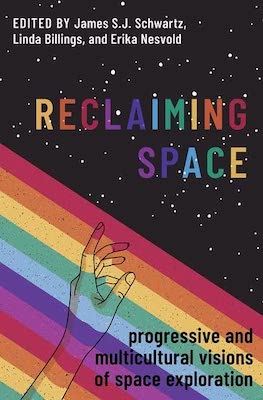
Tony Milligan (Cosmological Visionaries) has just
published a chapter on
Indigeneity and the Three Body Problem
in an innovative new edited collection called
Reclaiming Space: Progressive and Multicultural Visions
of Space Exploration
(Oxford University Press). The volume, looking at critical
approaches to space exploration, is edited by James S.J.
Schwartz (Assistant Professor of Philosophy, Wichita State
University), Linda Billings (Consultant, Planetary Science
Division, Science Mission Directorate, NASA), and Erika
Nesvold (Astrophysics Engineer). The chapter considers the
opportunities opened up through the inclusion of Indigenous
storytelling about origins within discussions of space and
ethics. Drawing an analogy with the three-body problem in
celestial mechanics, the paper points out that such
inclusion may help us to see that there is no fixed point,
no core principles, around which everything else in space
ethics must revolve. Three pathways to the inclusion of
Indigenous Knowledge are considered but their combination
points towards a multiplicity of things that matter from an
ethical point of view.
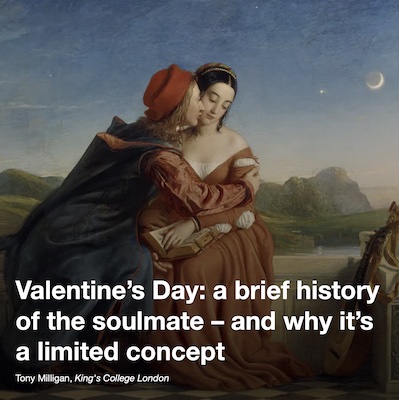
To mark this year’s Valentine’s Day,
Tony Milligan (Cosmological Visionaries) was asked to
submit a short piece for
The Conversation,
‘A brief history of the soulmate - and why it's a
limited concept’. This short text draws upon Dr Milligan’s ongoing research
into love’s temporality, and his attempt to make sense of
the relationship between love, humanity, and time as a
counterpart to his research on humanity, identity, and
space. The paper looks at the origins of our concept of the
soulmate, considers Dante’s account of what happens when
soulmates turn out to be bad for one another, and extends
very briefly into consideration of the haunted sense of love
and loss in Nishida Kitaro’s Kyoto School philosophical
texts. The Conversation piece
glosses ideas explored more fully in Dr Milligan’s recent
‘Mortal Longings’, published in Salskov, Beran, and Hämäläinen’s edited
volume titled
Ethical Inquiries after Wittgenstein
(2022), and in his
‘Abandonment and the Egalitarianism of Love’
published in Fedock, Kühler and Rosenhagen’s edited volume
Love, Justice, and Autonomy: Philosophical
Perspectives
(2021). Both these works consider love’s end and why we
often seem to care for what is fragile and transitory,
rather than enduring. Dr Milligan discusses this further in
an
interview for 95bFM in Auckland.
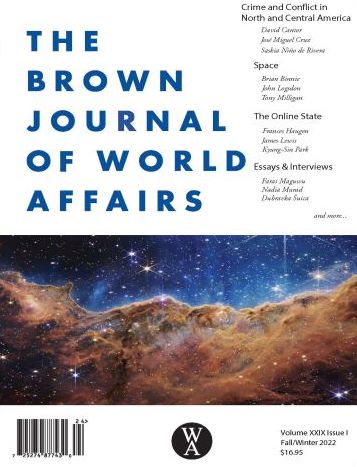
Tony Milligan (Cosmological Visionaries) has just
published
‘Inclusion and Environmental Protection in Space’
in the space-themed section of the new issue of
The Brown Journal of World Affairs, volume 29, issue 1. The article brings together his
recent work on Indigeneity and human activities in space and
sets out a dilemma concerning inclusion and environmental
protection: that the best interests of inclusion might well
be served by a rapid process of expansion. Rapid expansion
would allow us to take advantage of further opportunities
for Indigenous inclusion in an area of human activity,
subject to limited inertia of the past. Environmental
protection in space, by contrast, may be best served by
‘slow space’, allowing for the containment of problematic
activities that yield short term advantages. The upshot is
that at least some environmental responsibilities may end up
being pushed into the future in the interests of Inclusion.
This prospect requires a certain kind of trust in future
generations to advance justice in the present in a clearly
available way.
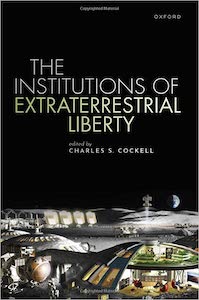
Tony Milligan (Cosmological Visionaries) has just
published a chapter on
'Indigenous Inclusion within the Democratization of
Space'
in Charles S. Cockell’s new edited volume with Oxford
University Press about political liberties in relation to
human expansion into space. The chapter considers
co-operation between the Diné/Navajo as an exemplar for
broader kinds of Indigenous-driven processes of
democratisation within space programs. It links the
argument from belonging first set out in Milligan’s
recent article
'From the Sky to the Ground: Indigenous Peoples in an
Age of Space Expansion'
in Space Policy with broader
rationales for democratization. The chapter also compares
the belonging argument to a liberties argument that
certain kinds of broad political freedoms would be a
long-term stabilizing factor in space communities – given
the extreme vulnerabilities of life in space and constrained
limits for dissent.
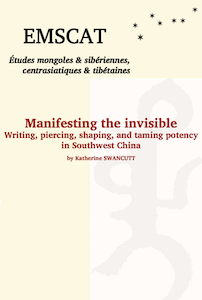
‘Manifesting the Invisible: Writing, Piercing, Shaping,
and Taming Potency in Southwest China’
by Katherine Swancutt (Project Lead of Cosmological
Visionaries) has been published in
Études mongoles et sibériennes centrasiatiques et
tibétaines
as part of a special issue titled ‘Figurations chamaniques.
Broderies, dessins et écritures comme interfaces entre le
visible et l’invisible’ (‘Shamanic Figurations:
Embroideries, Writings and Drawings as Interfaces between
the Visible and the Invisible’). The article shows that
potency is an often invisible form of power that becomes
manifest when written deeply into bodies and things. Among
the Nuosu, a Tibeto-Burman group of Southwest China,
“writing” or “manifesting” (bbur ꁱ) is a vast
polysemic concept rooted in the scriptures of priests,
which, however, exceeds its own bounds. Nuosu manifest
potency by writing it into religious scriptures and
handwrought effigies, piercing it into embroidered clothing
and tattooed bodies, shaping it into public statues, and
taming it into animals, all of which bring animate powers
and presences to life.

‘Relocating the Future: Biographical Objects,
Aspiration, and Repair in Urban Taipei’
by Elisa Tamburo (Harvard University, formerly of
Cosmological Visionaries) has been published in Volume 29,
Issue 1 of the
Journal of the Royal Anthropological Institute. The article explores how urban relocation unfolds as a
time of social reproduction. Taking the case of Zhongxin
Village in Taipei, a military settlement that was relocated
in 2016, Tamburo shows that while mainland Chinese veterans
experienced the move with reluctance, their Taiwanese wives
readily stepped up to bridge family histories. Offering new
ethnography on ‘family repair’ and the arranging of
ancestral altars, she suggests that loss is often not the
only force at play when moving home. The Taiwanese wives of
Zhongxin Village recount family stories that are elicited
through their engagement with ‘biographical objects’. They
transmit family lore through daily acts of care even as they
project aspirations for the futures of their descendants
onto the furnishing of new flats. This marriage of
materiality, aspiration, repair, and affect shows that
relocation can encourage the social reproduction of the
family and, for some, a move from remembrance to aspiration.
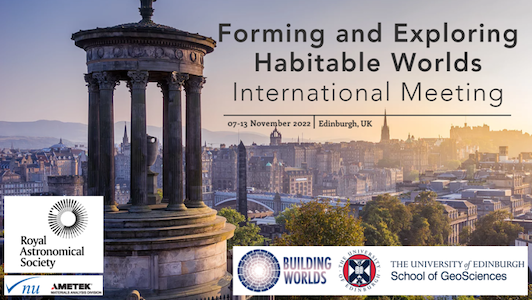
Tony Milligan (Cosmological Visionaries) presented
Ground Bias: A Driver for Skepticisms about Space
Exploration
at
Poderá a ciência com ética salvar o mundo, an online event organised by the Universidade de Coimbra,
on 21 November 2022. He also presented this paper in person
on 10 November 2022 at the
Forming and Exploring Habitable Worlds
international meeting, which was organised by the Earth and
Planetary Institute at the Edinburgh School of Geosciences
and the Royal Society of Edinburgh. These presentations
pursued the theme that an over-separation of sky and ground
has characterised non-Indigenous thinking about space in
recent times.
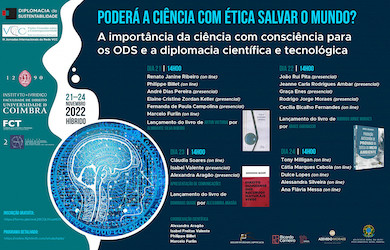
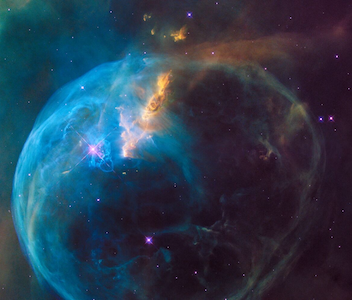
‘Ground Bias: A Driver for Skepticisms about Space
Exploration’ by Tony Milligan (Cosmological Visionaries) has
now been published in the Planetary Science section of
Frontiers in Astronomy and Space Sciences. The article develops the concept of ‘ground bias’ as a
modern tendency to over-separate Sky and Ground, leading to
a variety of different forms of skepticism about ambitious
human activities beyond Earth and beyond the use of
satellite systems in orbit. The paper is part of a cluster
of publications by Milligan about space, bias, and
Indigeneity, which will be appearing over the coming months.
It begins the slow task of making sense of the bias appealed
to in his recent publication, ‘From the Sky to the Ground: Indigenous Peoples in an
Age of Space Expansion’, a bias which is both modern and characteristically
absent from Indigenous cosmologies once the latter are seen
as more than ecologies.

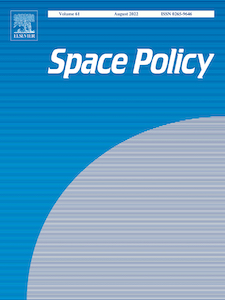
‘From the Sky to the Ground: Indigenous Peoples in an
Age of Space Expansion’ by Tony Milligan (Cosmological Visionaries) has
now been published by
Space Policy, and is available
open access on the journal website and on the
KCL Website. The article develops the claim that Indigenous peoples
have a distinctive role in the long-term stabilization of
space expansion by humanity. Against the stereotype of
uniform Indigenous hostility to space programs, the paper
argues that Indigenous cosmologies do not typically suffer
from ‘ground bias’, and do not radically separate Sky and
Ground. This allows a core
argument from belonging to be set up, to the effect
that Indigenous perspectives can inform the sense of
belonging that we will increasingly need. One which is
larger than Earthly and ecological, and which can be stable
over multiple generations in the face of the risk of program
abandonment as social priorities and values shift and
change.
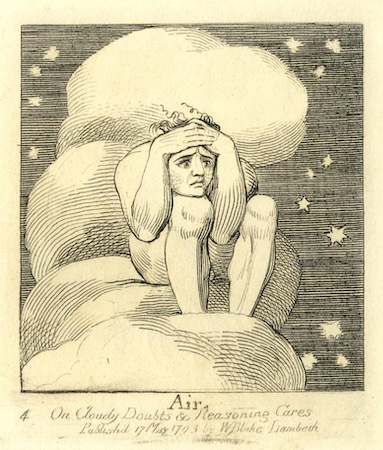
Tony Milligan (Cosmological Visionaries) presented a
talk titled ‘Ground Biases’ and
Katherine Swancutt (Project Lead of Cosmological
Visionaries) presented a talk called ‘Cosmologies: The Air
is Thick with Spirits and Forces of Nature’ at a workshop
exploring AIR, the first in a series of collaborative
elements-themed events between KCL and ASU in the field of
Environmental Humanities.
IMAGE CREDIT: The Trustees of the British Museum (CC
BY-NC-SA 4.0)

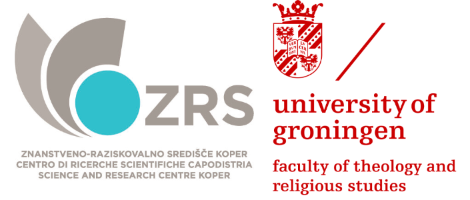
Katherine Swancutt (Project Lead of Cosmological
Visionaries) will present a keynote at the
‘Nature Religions, Science and Technology’
conference co-organized by The Institute of Philosophical
Studies, Science and Research Centre of Koper, and The
Faculty of Theology and Religious Studies, University of
Groningen. Her talk will explore how ‘cosmological visions’
unsettle animistic and scientific ways of relating to the
world. It will offer an ethnographic vignette of how an
ethnohistorian and animistic priest set out, at the request
of a local official, to address deforestation in Southwest
China by ‘re-animating’ their peers with a new cosmological
vision – only to be met with a counter vision that revealed
a certain detachment from the world in
animistic-cum-scientific terms. Arguing that creativity like
this opens up spaces for re-envisioning what it means to be
alive to the world as an animist, scientist, or both, the
talk will join a collection of conference papers to be
submitted as part of a
special issue of
Religions
edited by Gorazd Andrejč (University of Groningen / Science
and Research Centre Koper) and Victoria Dos Santos (Science
and Research Centre Koper), titled ‘Religion, Science and
Technology in Pantheism, Animism and Paganism’. The talk
will also be presented at the
SOAS China Institute Seminar Series
on October 17th 2022.
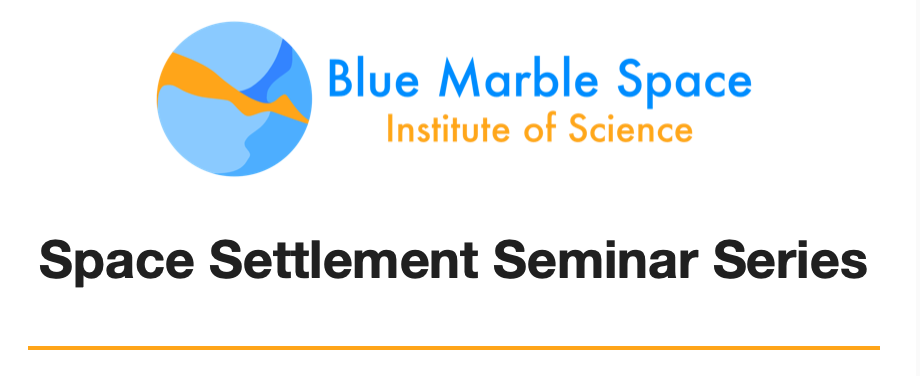
Tony Milligan (Cosmological Visionaries) will deliver
August’s Blue Marble Institute for Science seminar on space
settlement on August 25th at 9:00am US Pacific Time. Tony
will be challenging the exaggerated separation of space and
terrestrial issues of identity and belonging. The talk will
introduce the concept of ‘ground bias’ in order to make
sense of why deliberation about space is mistakenly seen as
marginal to key terrestrial issues. This concept, of a
special kind of bias, will also figure in a series of papers
due for publication in the autumn and in a keynote at the
forthcoming
Forming and Exploring Habitable Worlds
(hosted by the University of Edinburgh’s School of
Geosciences, and supported by the Royal Astronomical
Society). This Blue Marble talk,
Becoming Martians, will consider ideas of belonging, Indigeneity, and the
valuing of place under imagined and extreme conditions of
initial settlement on Mars.

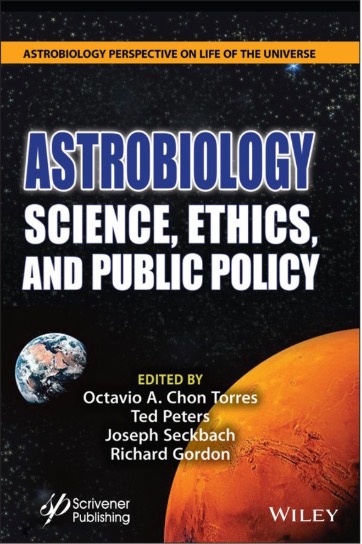
A
Daily Philosophy blog for July 9th
looks in some detail at a recent paper on
‘The Ethics of Biocontamination’
by Tony Milligan (Cosmological Visionaries),
published in the Chon Torres, Peters, Seckbach and Gordon
volume
Astrobiology: Science, Ethics, and Public Policy
(Wiley 2021). Milligan’s paper looks at the 2019 incident in
which micro-animals (Tardigrades) were accidentally crashed
onto the lunar surface, in a dormant state. This seems to be
a matter of some importance. But our reasons for thinking of
it as important are entangled with our attitudes towards
life as something important, even in its more rudimentary
forms. The thought is not that micro-animals, or even
microbes, might have rights, but that talk about inherent
value nonetheless has a role to play. The metaethical
implications of this claim have been considered in a
companion Tony Milligan paper on
‘Astrobiology and the Outer Limits of Human Ethics’
published in Ian Crawford’s edited volume on
Expanding Worldviews: Astrobiology, Big History and
Cosmic Perspectives
(Springer 2021).
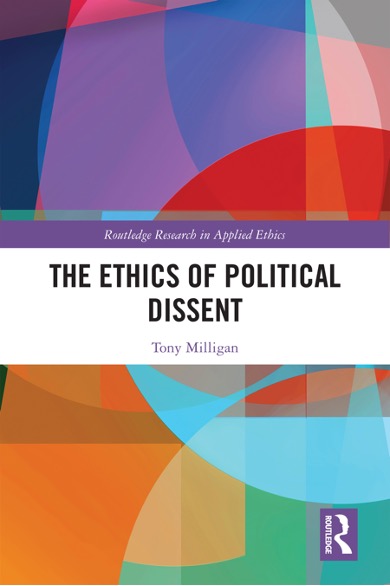
The latest monograph by Tony Milligan (Cosmological
Visionaries) has just been released by Routledge.
The Ethics of Political Dissent
explores the limitations of ethical principles and argues
that we cannot read moral character off of political
alignment. The focus of the text is upon dissent in the
West, with consideration of issues such as the removal of
statues and response to antisemitic shootings. The arc of
the book moves from an opening chapter, ‘The Fable of the
Colonial Ethicists’, which identifies the role of
colonialist assumptions in shaping the very structure of
ethics drawn upon in political critiques. These assumptions
are about the need for ethics to be principled, compact,
rule-like, and portable from one place to another. The arc
then moves towards a closing chapter that deals with the
difficult relation between love and politics. When engaged
in political action, agents do not cease to be who they are,
but who they are is always shaped by the things that humans
love and the ways in which they do so. A preview is
available
here.
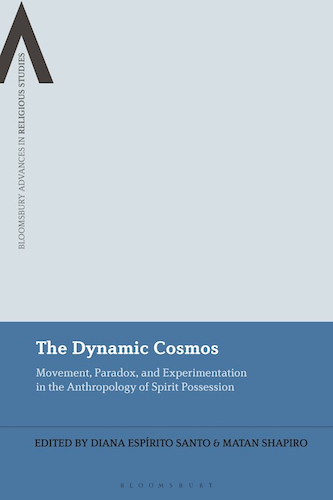
A new book chapter
‘The Threshold of the Cosmos: Priestly Scriptures and
the Shamanic Wilderness in Southwest China’
by Katherine Swancutt (Project Lead of Cosmological
Visionaries) has just been published in Diana Espírito Santo
and Matan Shapiro (Eds).
The Dynamic Cosmos: Movement, Paradox, and
Experimentation in the Anthropology of Spirit
Possession
(London, New York, Oxford, New Delhi, Sydney: Bloomsbury,
2022).
The chapter asks: What would the cosmos be like if it were
filled with shapeshifting spaces and cosmological passages,
rather than linear thresholds that compartmentalize it into
discreet locations? Anthropologists have classically
associated thresholds with the ritual process, where they
feature as hard and static boundaries that persons cross in
space and time. But the Nuosu of Southwest China inhabit a
world filled with multiple shapeshifting thresholds, which,
like a Mobius strip, respond to the pressures exerted within
and outside of them. Nuosu priests cross multiple thresholds
of learning to master their scriptures, whereas shamans
master spirit helpers from the wilderness through a rite of
passage conducted by priests. Assisted by spirit helpers,
priests and shamans routinely exorcize ghosts across
multiple thresholds of the home. Yet spirit possession is
the most difficult threshold to anthropologize, since this
is where the priest’s and shaman’s crafts are the most
imaginative, creative, and shapeshifting of all.
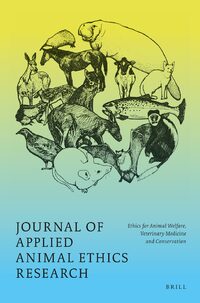
‘Animal Telos and Preference Adaptation’
by Tony Milligan (Cosmological Visionaries project)
has been published in the 2022 edition of the
Journal of Applied Animal Ethics Research
as part of a special edition to celebrate the lifework of
Bernard Rollin on bioethics and the place of ethics within
science. Rollin’s work is particularly noted for the role it
gives to animal telos, i.e., natural purposiveness,
as a factor in ethical deliberation which is consistent with
a scientific point of view. Papers by Lynne Kesel, Holmes
Rolston III, Steve Sapontzis, Tony Milligan, Donald Crosby,
Peter Markie, and Richard Kitchener were presented to Bernie
Rollin at Colorado State University in October 2021 and have
been published together as a Festschrift. The
Milligan paper looks at the biomodification of non-human
telos, and the harms that this may involve even in
cases where modification could be justifiable for welfare
reasons.
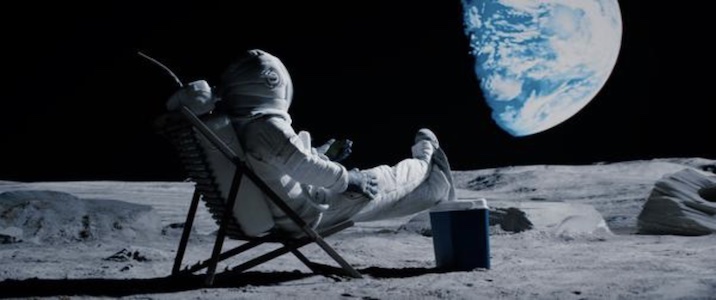
An extended exchange of ideas about property rights between
Tony Milligan (Cosmological Visionaries project) and
Rebecca Lowe (Adam Smith Institute) was posted on
March 2nd by the
Institute of Art and Ideas. The
exchange,
‘Who owns the moon?’, considers the relevance of John Locke’s classic advocacy
of property rights for the lunar surface. Lowe argues
strongly in favour of dividing up the surface into a form of
Lockean quasi-property held by private agents. Milligan
argues that Locke’s model turns out to be a bad fit for the
lunar resources in question. Strategic lunar resources, such
as Thorium, Uranium, and the best deposits of Helium 3 are
far too concentrated for a Lockean option to work in any
sort of fair and sustainable manner. Drawing upon recent
work on lunar and space resources (particularly the ongoing
Elvis, Milligan and Krolikowski research
collaboration), he argues for a gradual transition to a stable state
economy off-world, a plurality of quite different ways of
relating to resources, recognition of multiple ongoing
claims upon the same places, and protection of the lunar
surface.
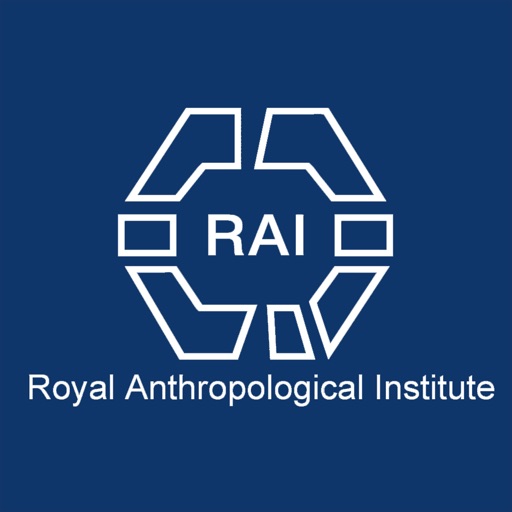
The British Museum’s Anthropology Library and Research
Centre, in conjunction with the Royal Anthropological
Institute, is pleased to present ‘Reviewer meets Reviewed’,
a discussion between
Professor Graham M. Jones (Massachusetts Institute of
Technology), author of
Magic’s Reason: An Anthropology of Analogy, and Dr Katherine Swancutt (Project Lead of
Cosmological Visionaries), who
reviewed the book
in the
Journal of the Royal Anthropological Institute. This virtual seminar will take place on 20 January 2022,
16.00-18.00 GMT, and will be made available on the RAI’s
YouTube channel
here.
RAI event calendar with link to register:
https://therai.org.uk/events-calendar/eventdetail/747/-/reviewer-meets-reviewed-magic-s-reason-an-anthropology-of-analogy
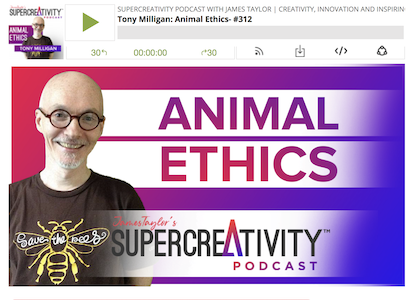
Supercreativity Podcast #312
opens 2022 with an Animal Ethics conversation between the
host, James Taylor, and
Tony Milligan (Cosmological Visionaries project). The
conversation focuses upon the complexity of our relations
with non-human animals, why these reach beyond familiar
theories about animal rights and how they relate to issues
in AI. The show ends with a brief consideration of proposals
that our moral community needs to expand into space and
needs to understand our place in ways which are cosmological
and not only ecological.
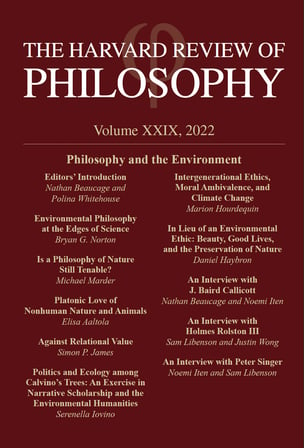
An online first version of a paper by
Tony Milligan (Cosmological Visionaries project) for
the 2021
Harvard Review of Philosophy is
now available. ‘The Tolerant Animal Advocate’ pictures an
ordinary agent who combines partisanship in support of
non-human animals with tolerance. It goes on to argue that
the charge of hypocrisy is overused by those whose tolerance
falls short, because dietary practice alone is an
insufficient basis for assessing the character of others.
The post-proof is available
here; and the first view version is available
here.
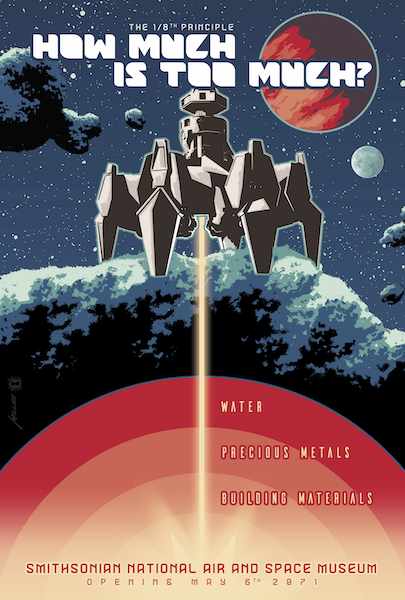
A poster designed by Brian Miller and based on ’How much of the Solar System should we leave as
wilderness?’ by Martin Elvis (Center for Astrophysics, Harvard
& Smithsonian) and Tony Milligan (Cosmological
Visionaries project), in
Acta Astronautica, is on show
as part of the Smithsonian FUTURES exhibition now running in
the Art and Industries Building in the National Mall,
Washington DC. The poster imagines the future in 2071, and
is linked to a
Short story by Canadian Science Fiction author
Madeline Ashby
in Slate Magazine, which also draws upon themes from the
ongoing space and society research collaboration by
Martin Elvis, Tony Milligan and
Alanna Krolikowski (Center for Science, Technology,
and Society, Missouri University of Science and Technology).
The poster is based around the Elvis-Milligan Principle that
an economic system expanding at a historically normal rate
should use at most 1/8th of the resources of the Solar
System. The exhibition is a collaboration between the
Smithsonian Institution and the Center for Science and the
Imagination at Arizona State University and is due to run
from 20 November 2021 to 6 July 2022.
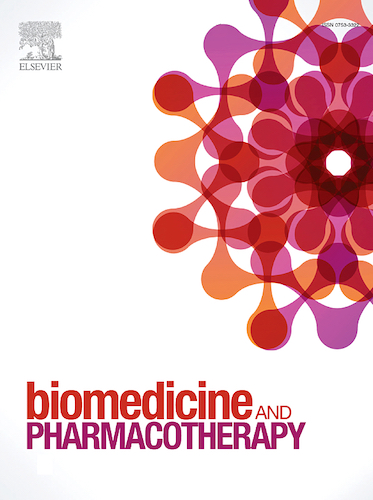
‘SuperTCM: A biocultural database combining biological
pathways and historical linguistic data of Chinese
Materia Medica for drug development’, on which Lena Springer (Cosmological Visionaries
project) is a lead author, has appeared in
Biomedicine & Pharmacotherapy.
The article explores how ethnopharmacological rigour in the
drug development of Traditional Chinese Medicine (TCM)
requires a scientific multi-linguistic naming of Materia
Medica in China that includes their natural sources, crude
drugs, and mixed recipes. Naming these Materia Medica offers
a powerful tool for sorting their particular ethnic,
historical, and easily confused pharmaceutical trade names.
A new
website and database
at Charité Medical University Berlin integrates all these
names from different disciplines and the pharmaceutical
literature, positioning them further within a second set of
scientific content. Mapping these Chinese names against
standard disease names, molecular ingredients, genetic
targets, the KEGG database, and illustrative maps of these
biological pathways, the SuperTCM website makes medicines
from China accessible to different developers of new
plant-based treatments and combinations of drugs.
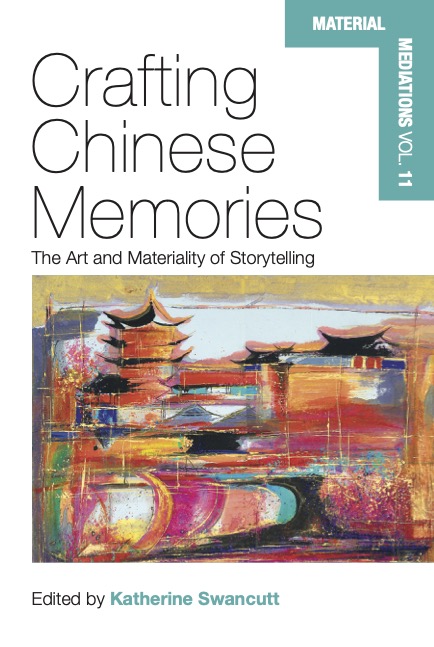
Edited by Katherine Swancutt (Project Lead of
Cosmological Visionaries),
Crafting Chinese Memories: The Art and Materiality
of Storytelling
contains three of her contributions:
‘Introduction - Materiality, Imagination and the
Memorable’,
‘Jailhouse Blues, Storytelling and Becoming the Stuff
of Legends in Southwest China’
(co-authored with Jiarimuji 嘉日姆几), and
‘Conclusion - Layers, Traces, Fields and Storehouses of
Memory’.
Through an interdisciplinary conversation with contributors
from social anthropology, religious studies, film studies,
literary studies, cultural studies, and history,
Crafting Chinese Memories is a
novel book which addresses how works of art shape memories,
and offers new ways of conceptualising storytelling,
memory-making, art, and materiality. It explores the
memories of artists, filmmakers, novelists, storytellers,
and persons who come to terms with their own histories even
as they reveal the social memories of watershed events in
modern China.
A blog entry about this book is available
here.
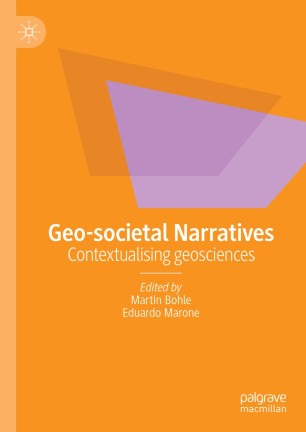
A new book chapter
‘After the Permafrost: A Provisional Outline’
by Tony Milligan (Cosmological Visionaries project)
has just been published in Martin Bohle and Eduardo Marone
(Eds.)
Geo-societal Narratives: Contextualising
Geosciences
(Cham, Switzerland: Palgrave Macmillan, 2021). The chapter
looks at our emerging environmental predicament as a case of
tragic dilemma, where we cannot protect all the things that
we value in the ways that we would like to. It outlines how
a concept of ‘integrity of place’ can help us continue to
value landscapes even under the impact of loss.
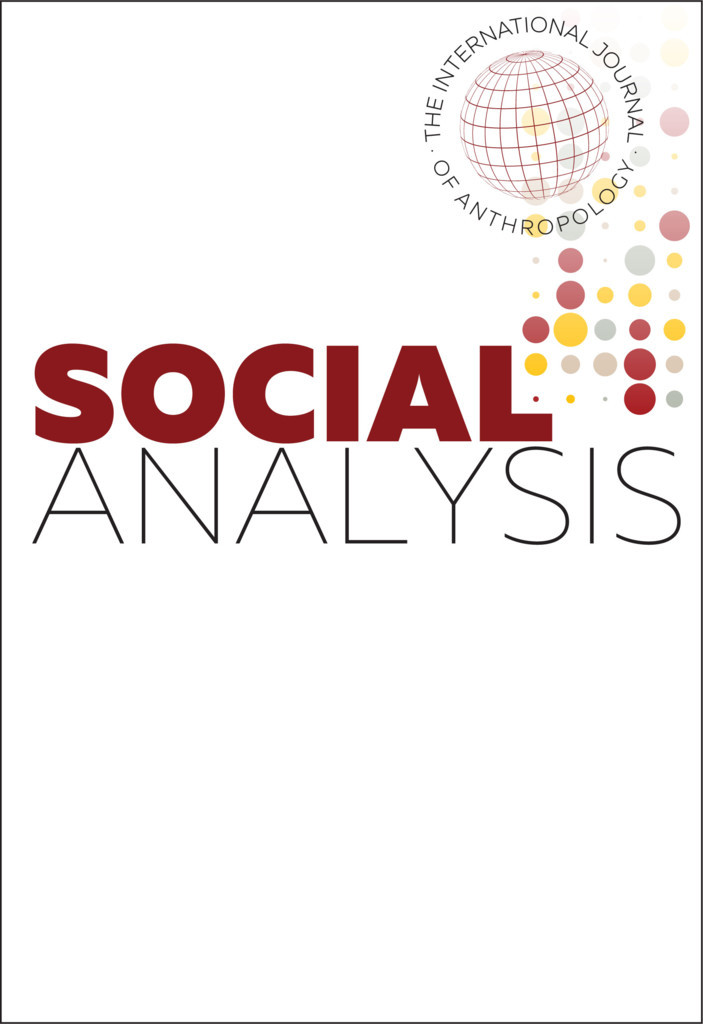
‘The Chicken and The Egg: Cracking the Ontology of
Divination in Southwest China’
by Katherine Swancutt (Project Lead of Cosmological
Visionaries) has been published open access on the web page
of Social Analysis in Volume
65, Issue 2. This article explores the role of cosmological
proliferation in Southwest China with reference to forms of
divination that make use of chickens and eggs. It shows that
both divine agency and the calculations of diviners can be
integral to divination, other predictive methods, and the
‘hatching out’ of new creation stories.
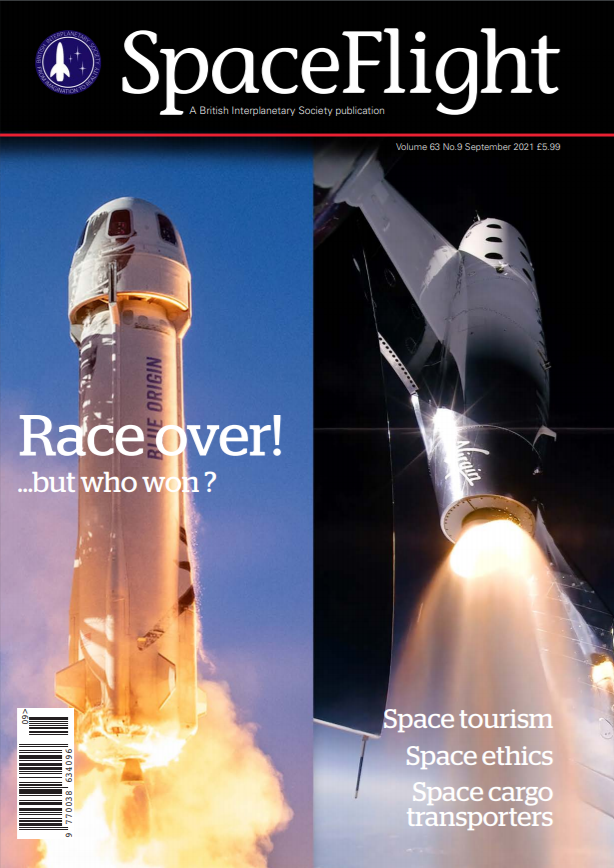
A forthcoming Nina Kojima article
‘Shall we stay...or should we go?’
in the September 2021 edition of
Spaceflight carries coverage of
work by long term-collaborators
Tony Milligan (Cosmological Visionaries project) and
James S.J. Schwartz (Wichita State University) on the
ethical dimensions of space exploration.

In this 10 minute slot on the
Voice of Islam’s weekday Drive Time Show, Tony Milligan (Cosmological Visionaries project)
answers questions about environments in space, the
utilisation and protection of the Moon and Mars, and the
slow global pressures that may eventually result in a new
space treaty involving China and the US. The interview is
available as a podcast
here.

An early view of
‘“It’s Scientific!” Play, Parody, and the
Para-ethnographic in Southwest China’
by Katherine Swancutt (Project Lead of Cosmological
Visionaries) has been published as open access on the web
page of the
Journal of the Royal Anthropological Institute. The definitive version will appear in Volume 27, Issue 3
of the JRAI in September 2021.
This article explores drinking games that play with the
scientific, and anthropology in particular, in Southwest
China. It shows how ethno-historians from an ethnic minority
group of China alternately parody or champion all things
scientific.
Update 5 August 2021: The definitive version is now
available as Open Access
here.
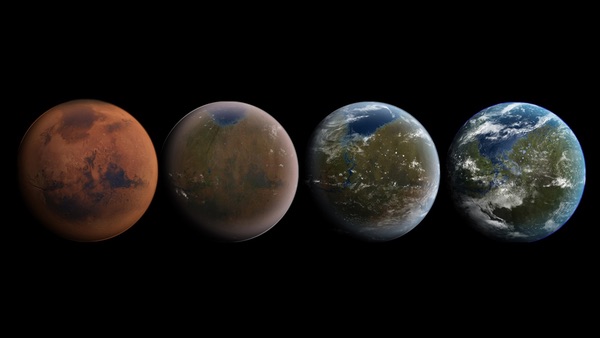
Tony Milligan (Cosmological Visionaries project) has
collaborated with James S.J. Schwartz (Wichita State
University) on an op-ed for
The Space Review, describing the history of ‘space ethics’ and its
important role in the space sciences.
IMAGE CREDIT: Daein Ballard CC BY-SA 3.0

Katherine Swancutt (Project Lead of Cosmological
Visionaries), Tony Milligan (Cosmological
Visionaries), Elisa Tamburo (Cosmological
Visionaries) and Lena Springer (Cosmological
Visionaries) took part in the first King’s College London
partnering initiative with Arizona State University. The
event was an ideal opportunity to introduce the Cosmological
Visionaries project to scholars from both institutions
during discussion about a possible transatlantic Centre for
Environmental Humanities.
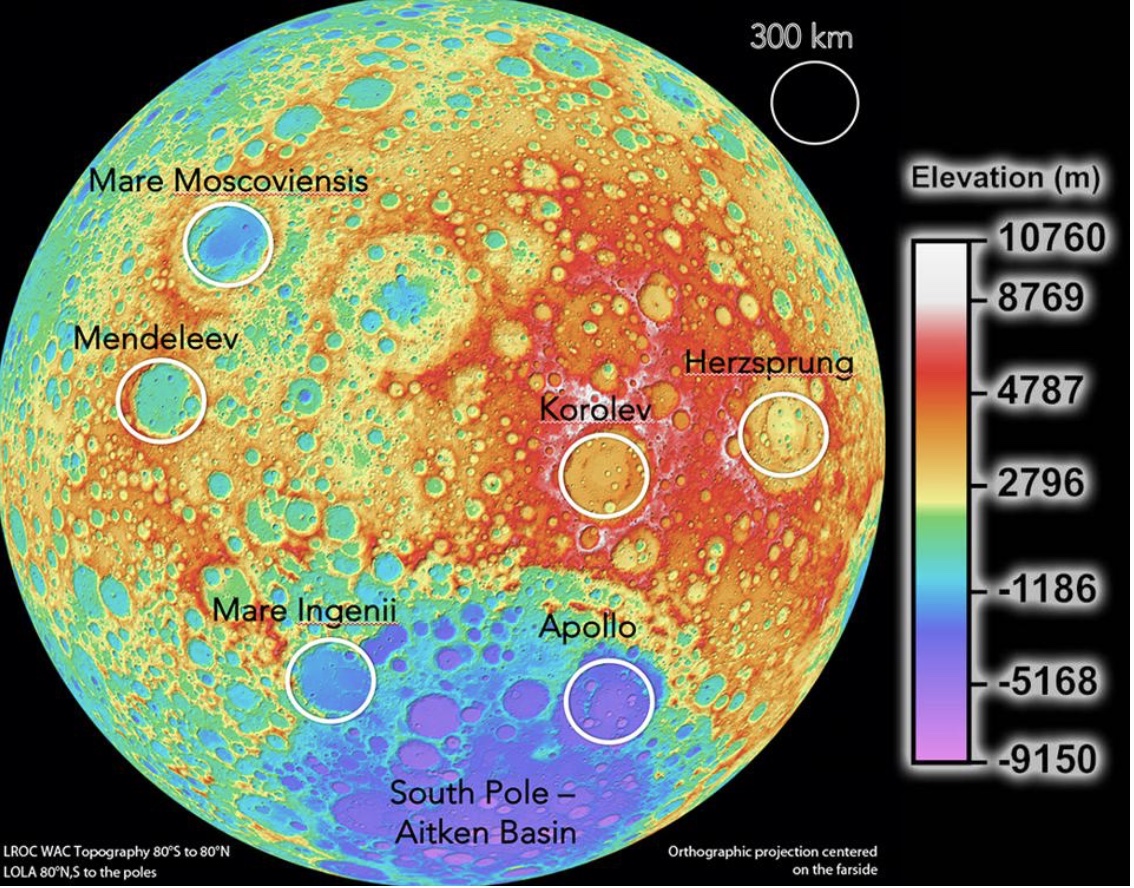
Philosophical Transactions of the Royal Society A
has just published
‘Concentrated Lunar Resources: imminent implications
for governance and justice’, the latest article in an ongoing collaboration between
Tony Milligan (from the Cosmological Visionaries
project), Martin Elvis (Center for Astrophysics,
Harvard & Smithsonian), and
Alanna Krolikowski (Center for Science, Technology,
and Society, Missouri University of Science and Technology).
While there is a tendency to think of tensions in space as
the result of conflicting ambitions between state agencies
and the private sector, the article highlights the more
fundamental problem of limited and exhaustible strategic
resources on the Moon. Multiple and legitimate stakeholders
from science, lunar protection and the private sector are
all targeting the same limited sites such as cold traps, the
Peaks of Eternal Light down in the South Polar Region, the
relatively small number of iron rich areas which result from
asteroid impacts, and areas with the highest concentrations
of Helium-3. The authors review the strategic resources and
sites and consider issues of policy response and timeliness:
what needs to be done and when. Various options are
considered to deal with crowding, and a ‘veil of ignorance’
argument is set out to support the claim that it is better
to get lunar actors to establish some provisional norms
now, before strategic programs become fixed, and
before some of the advantageous pressures of uncertainty are
removed.
Interview on RTVI
Coverage in Forbes
Coverage on
Science Daily
Coverage on
The Conversation
IMAGE SOURCE: Picture taken by NASA Lunar
Reconnaissance Orbiter
IMAGE CREDIT: NASA/GODDARD SPACE FLIGHT
CENTER/DLR/ASU; OVERLAY: M. ELVIS, A. KROLIKOWSKI, T.
MILLIGAN
















